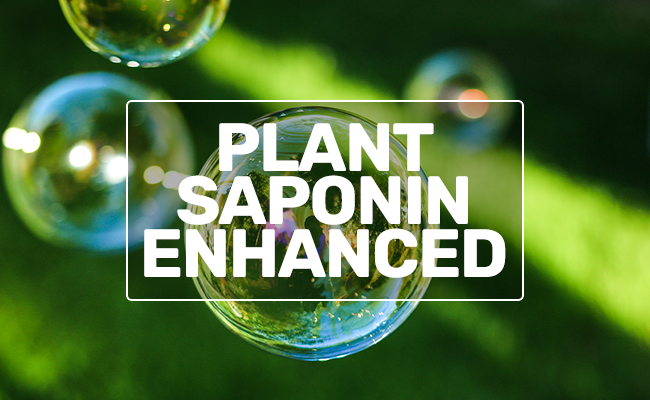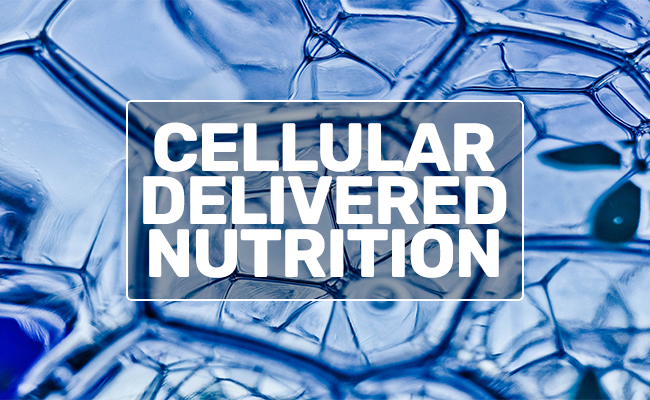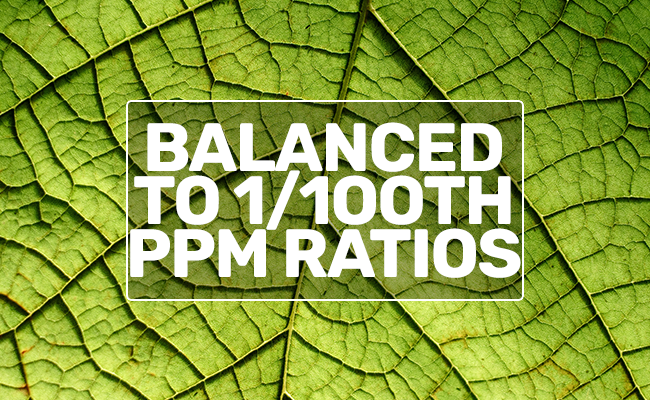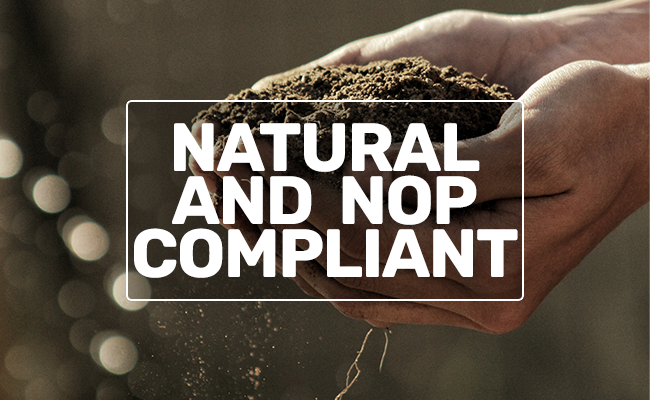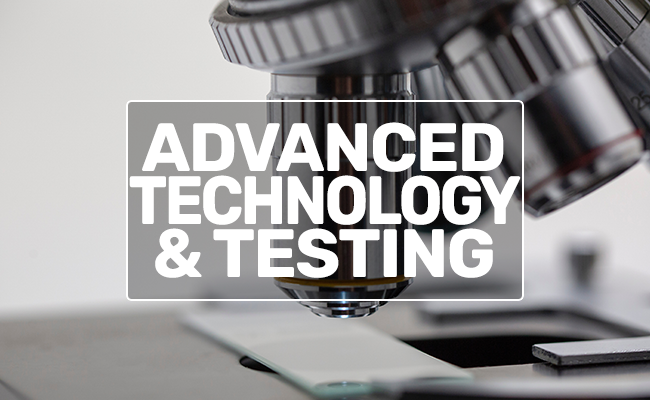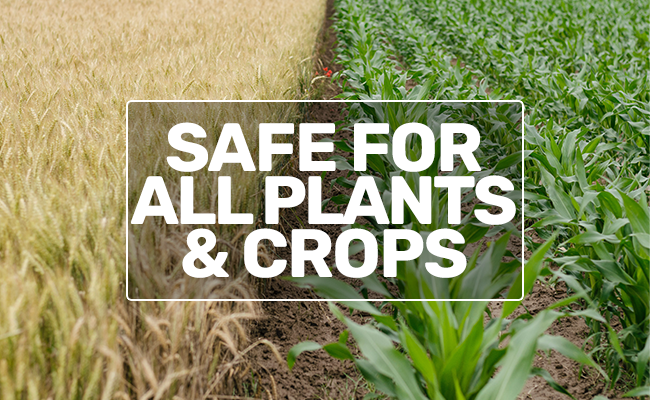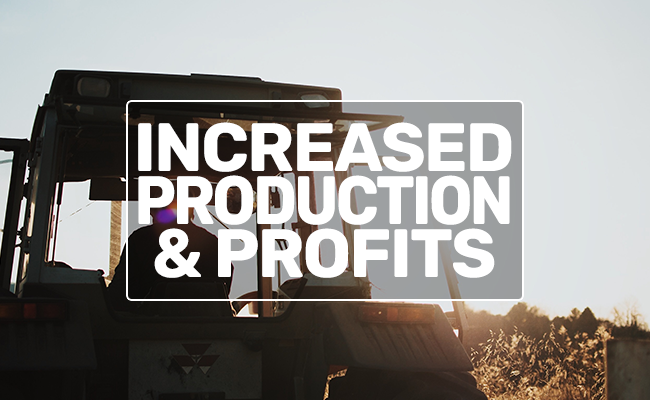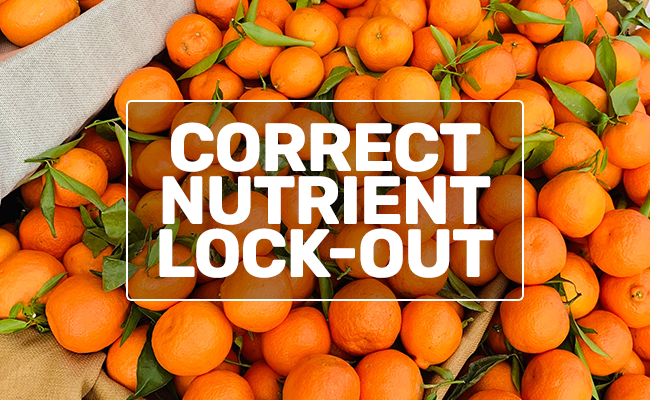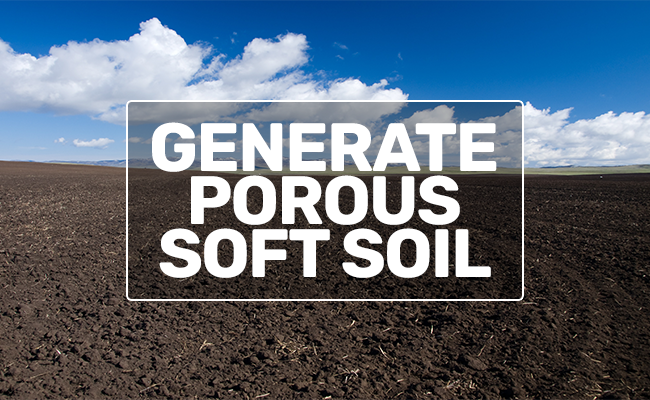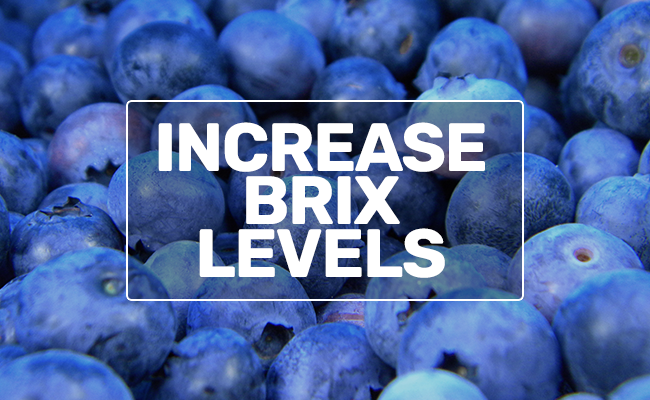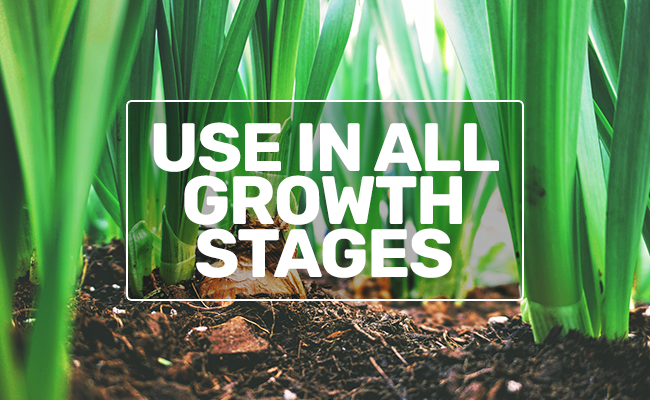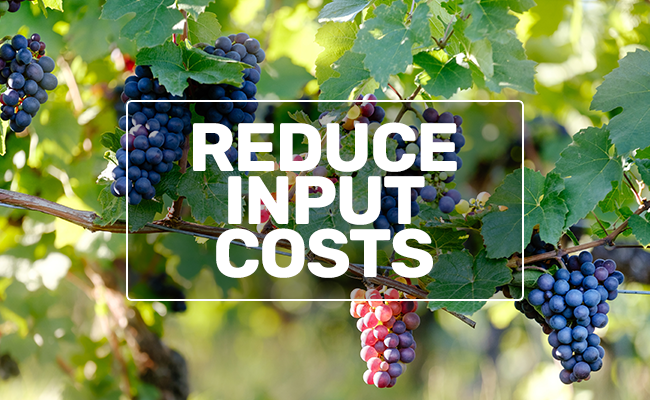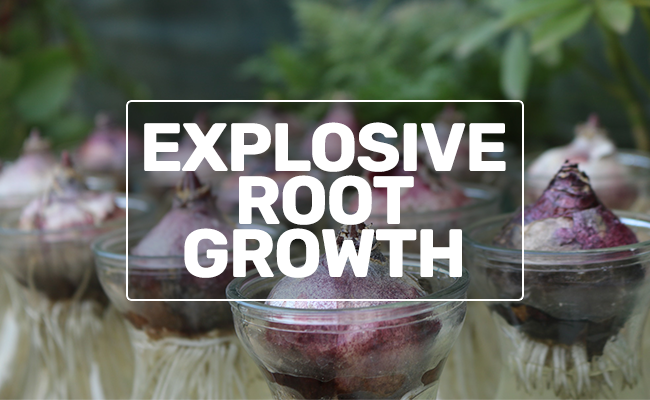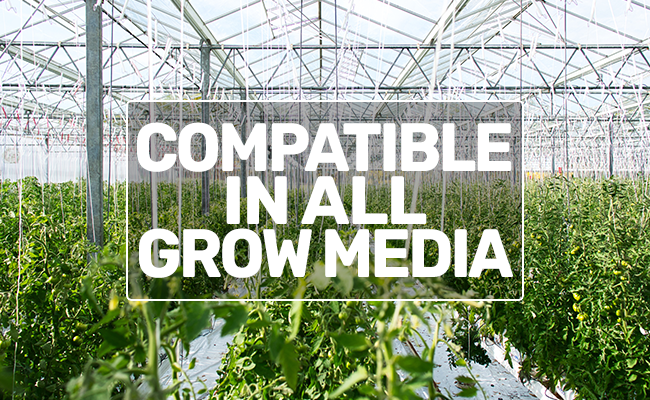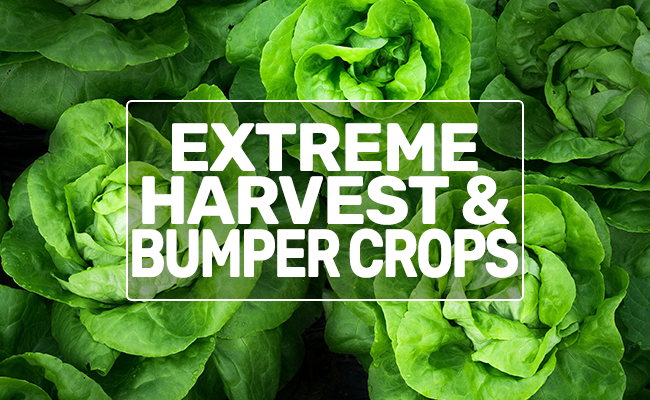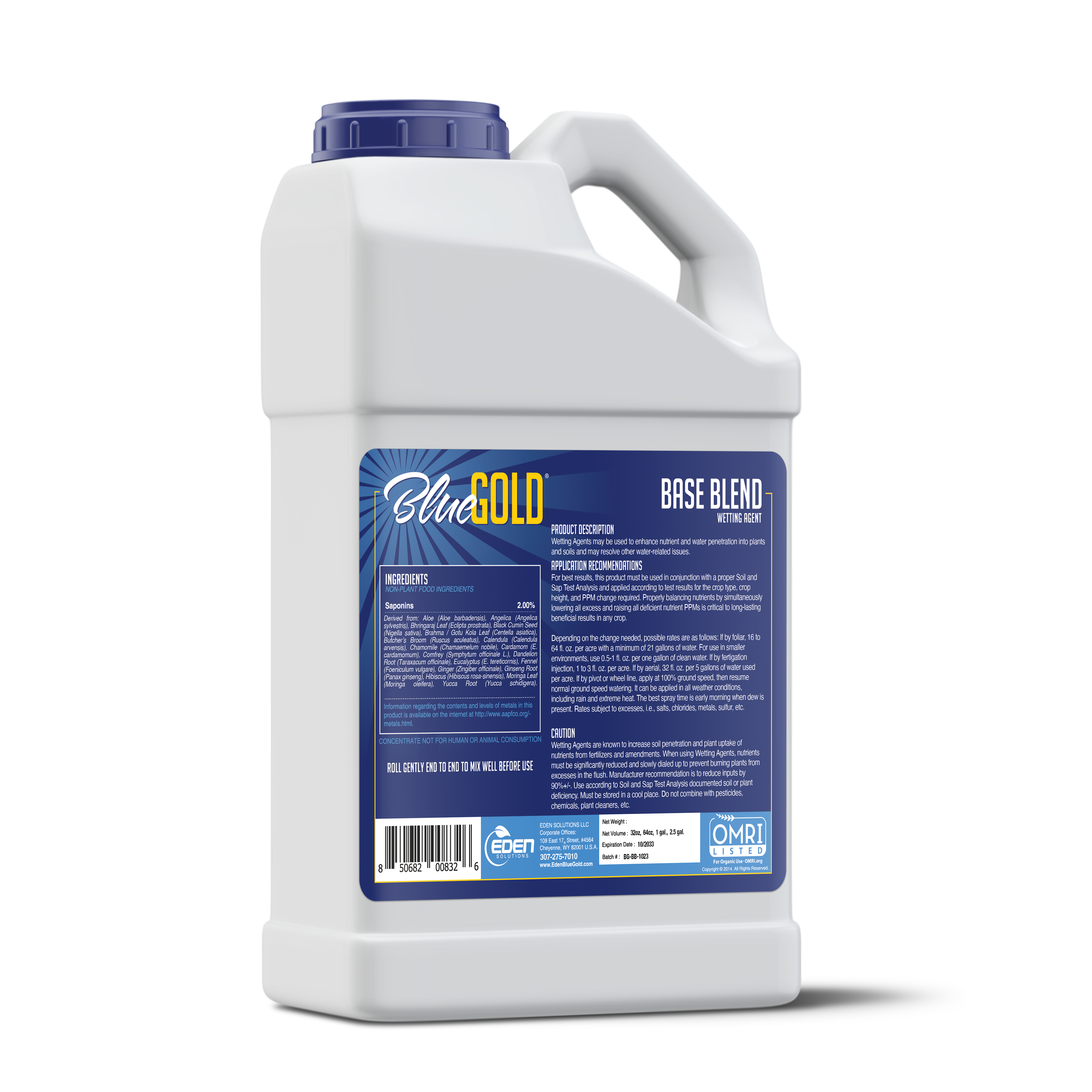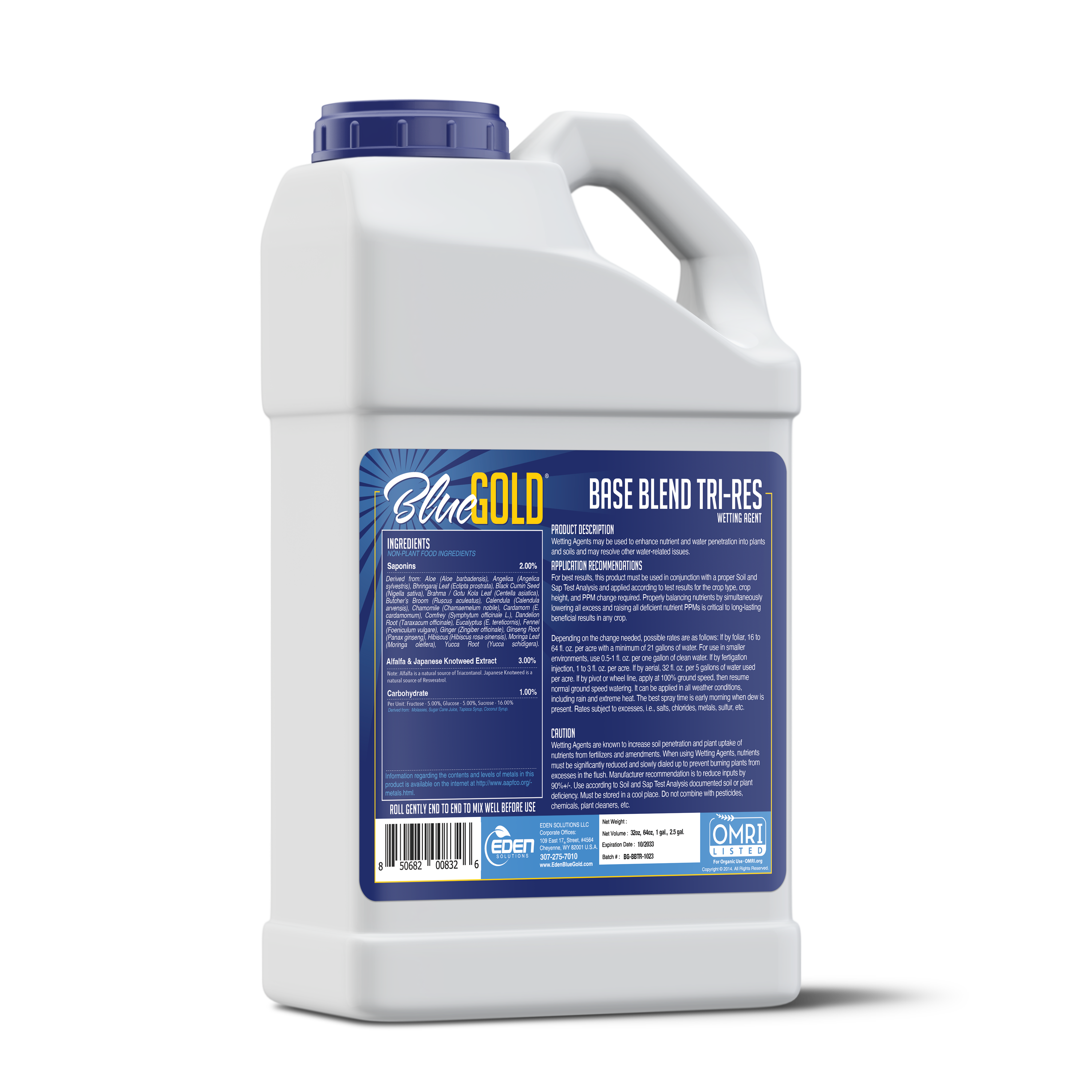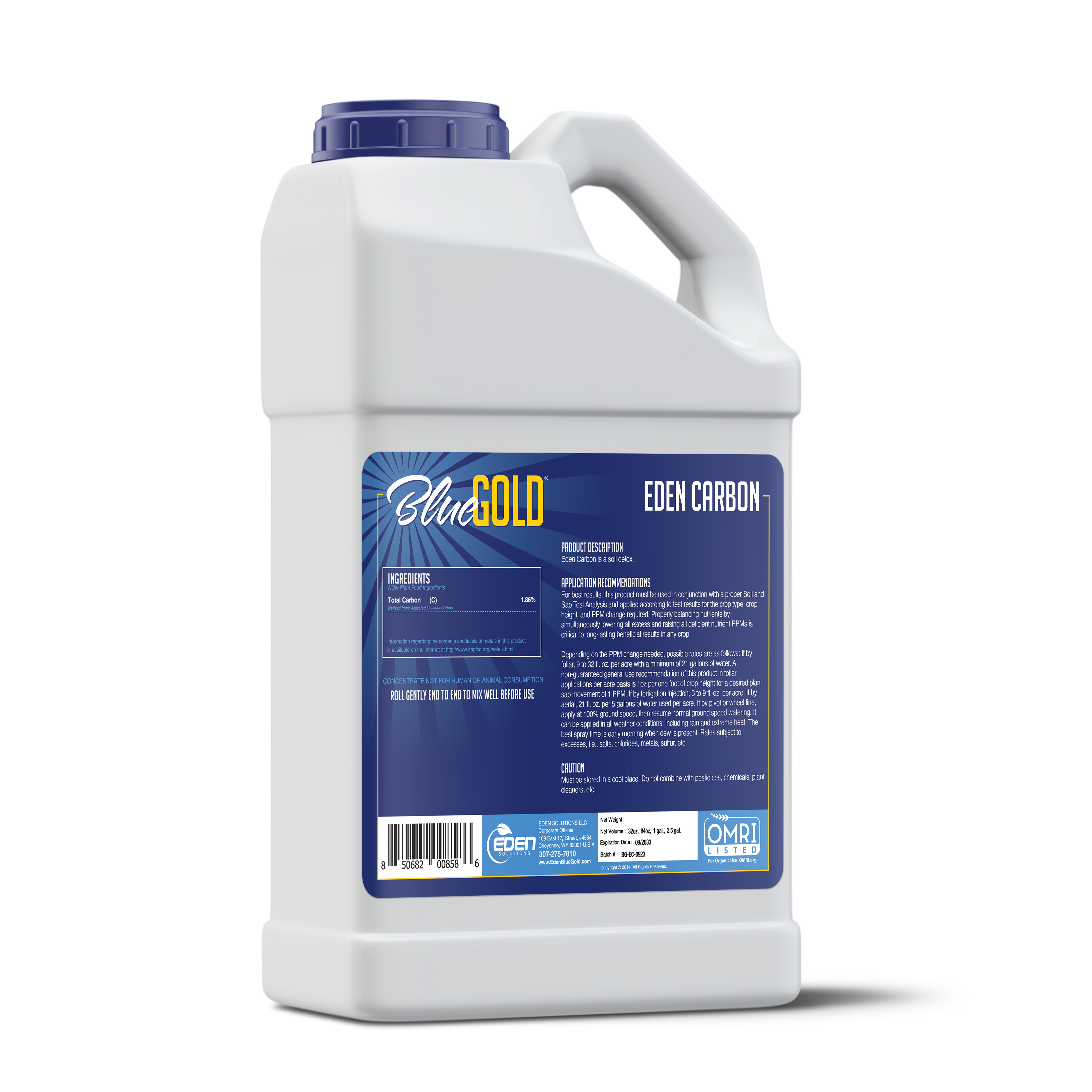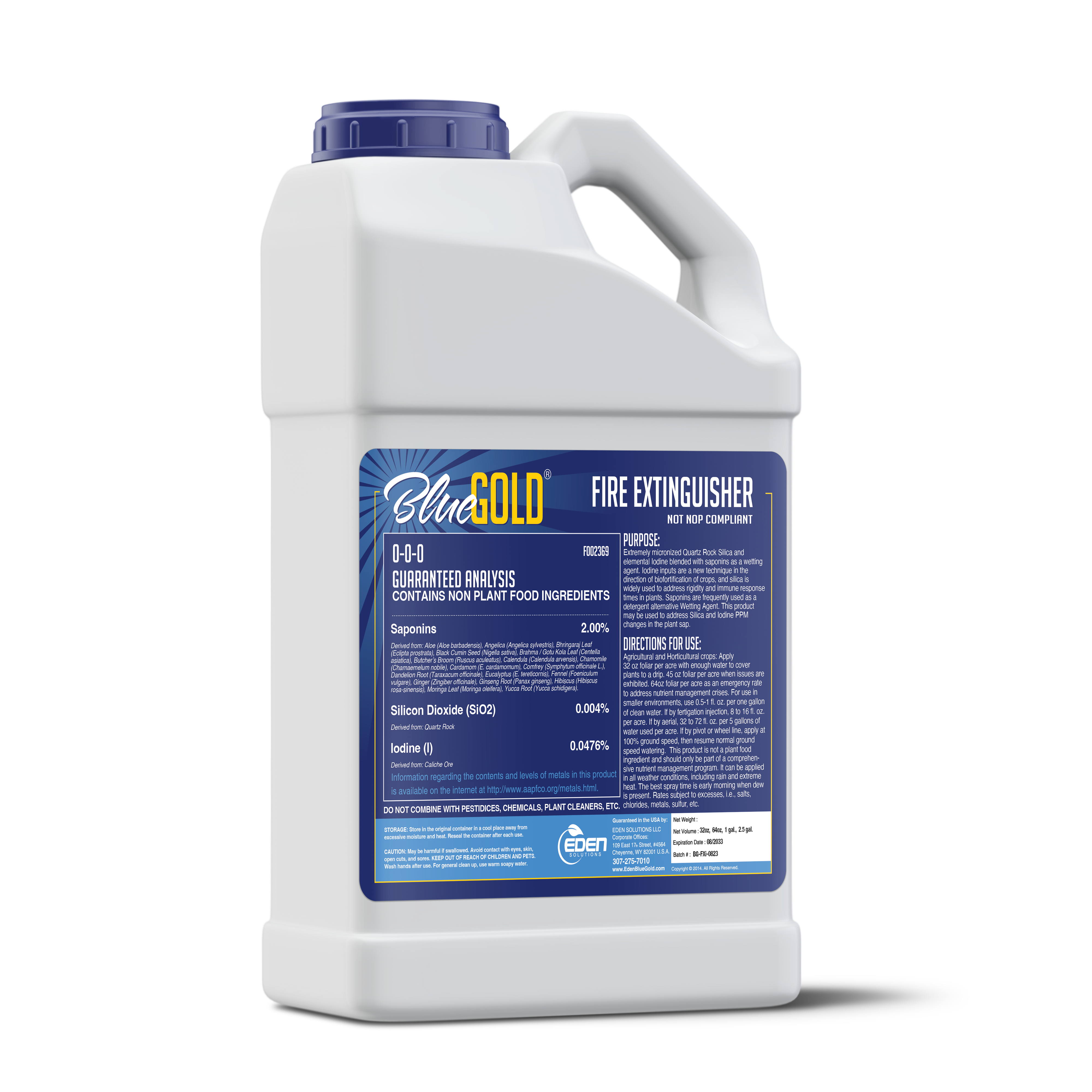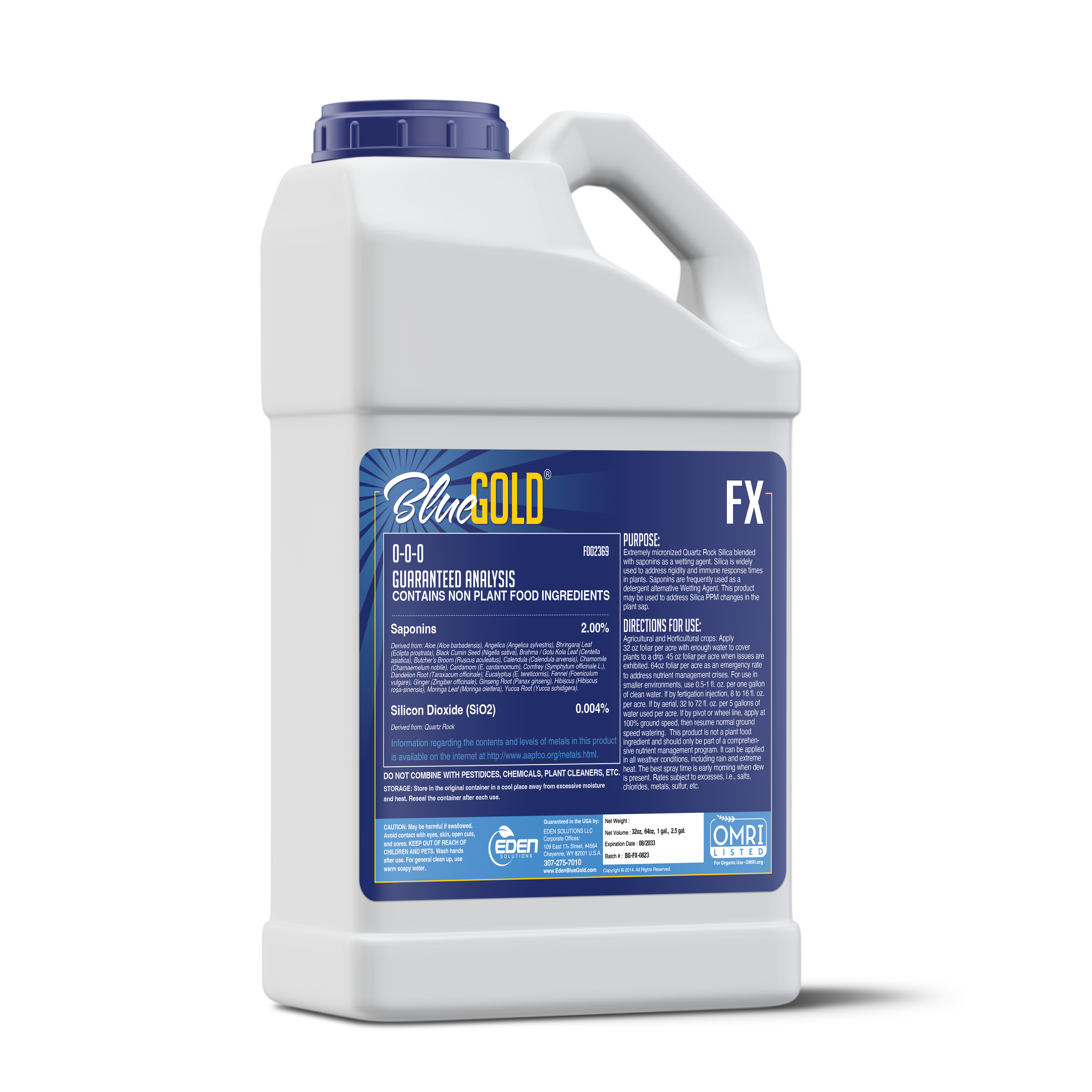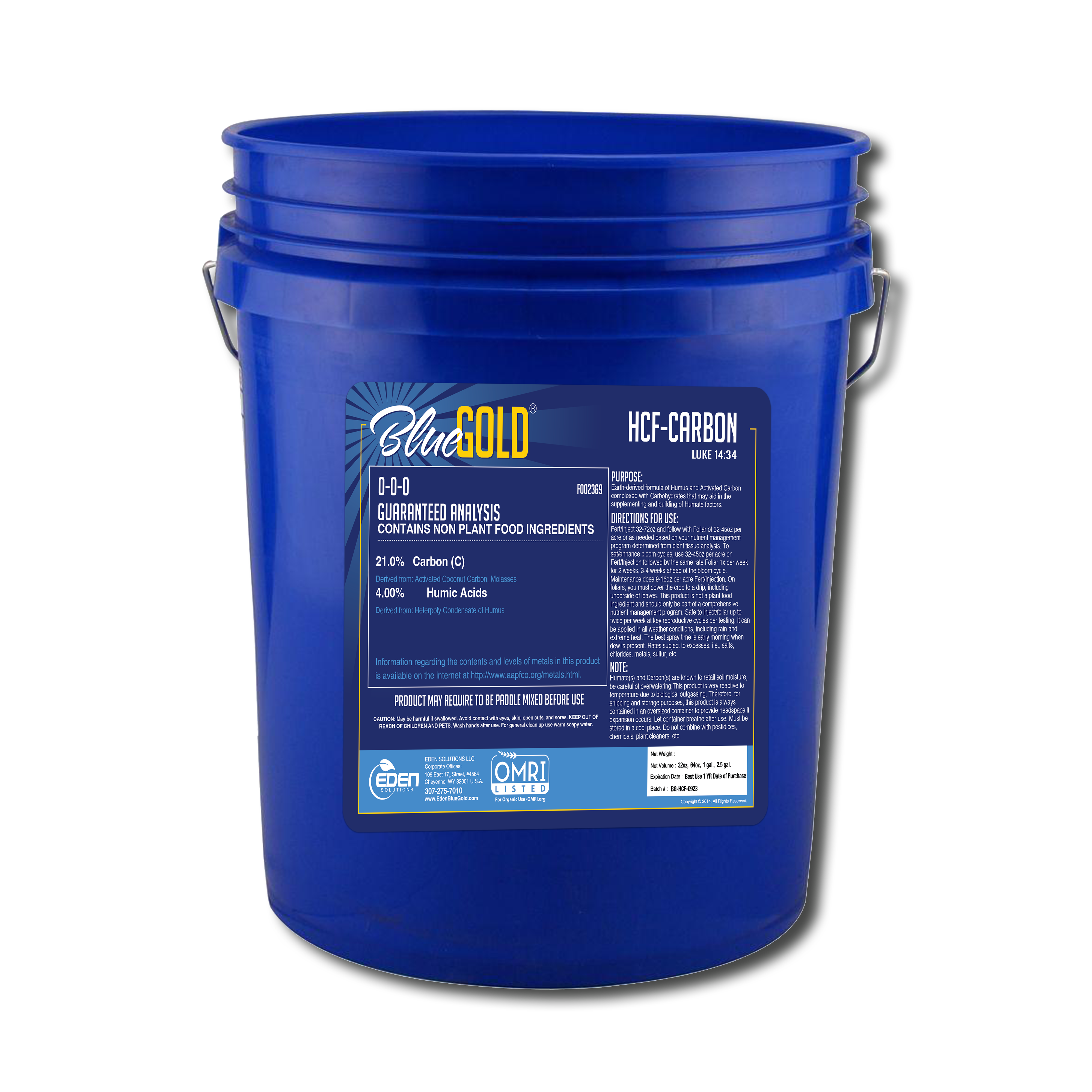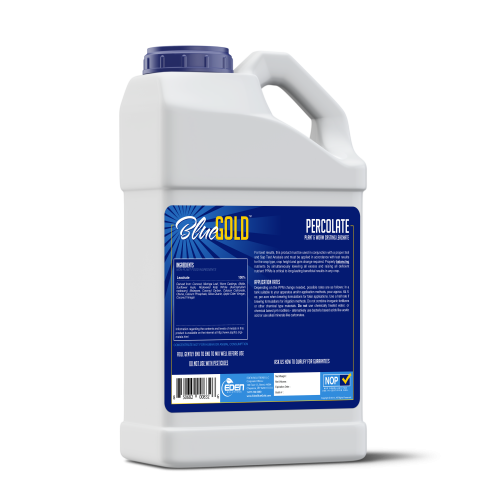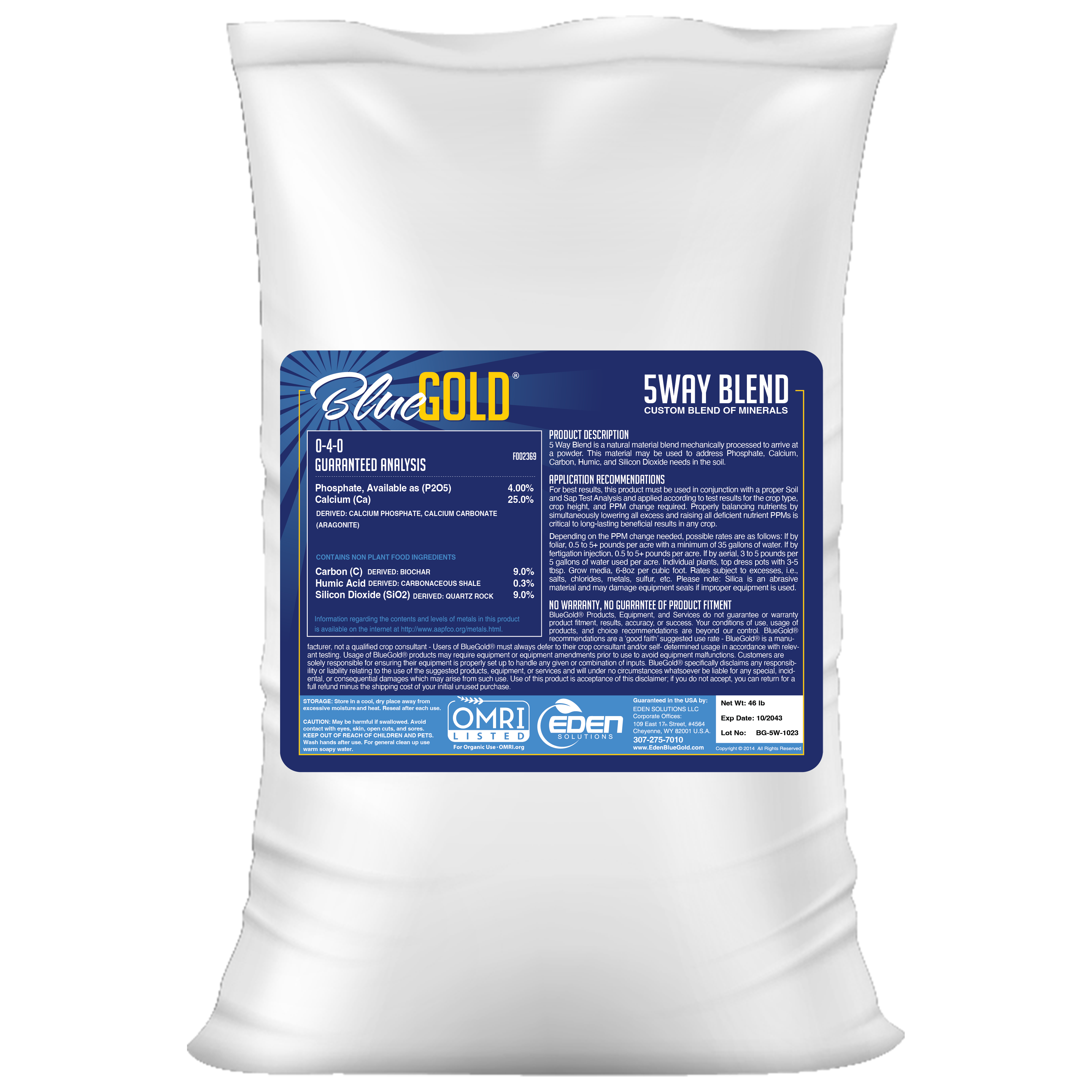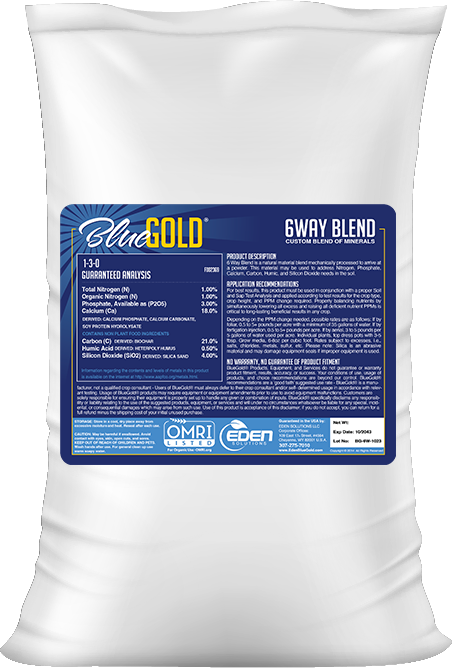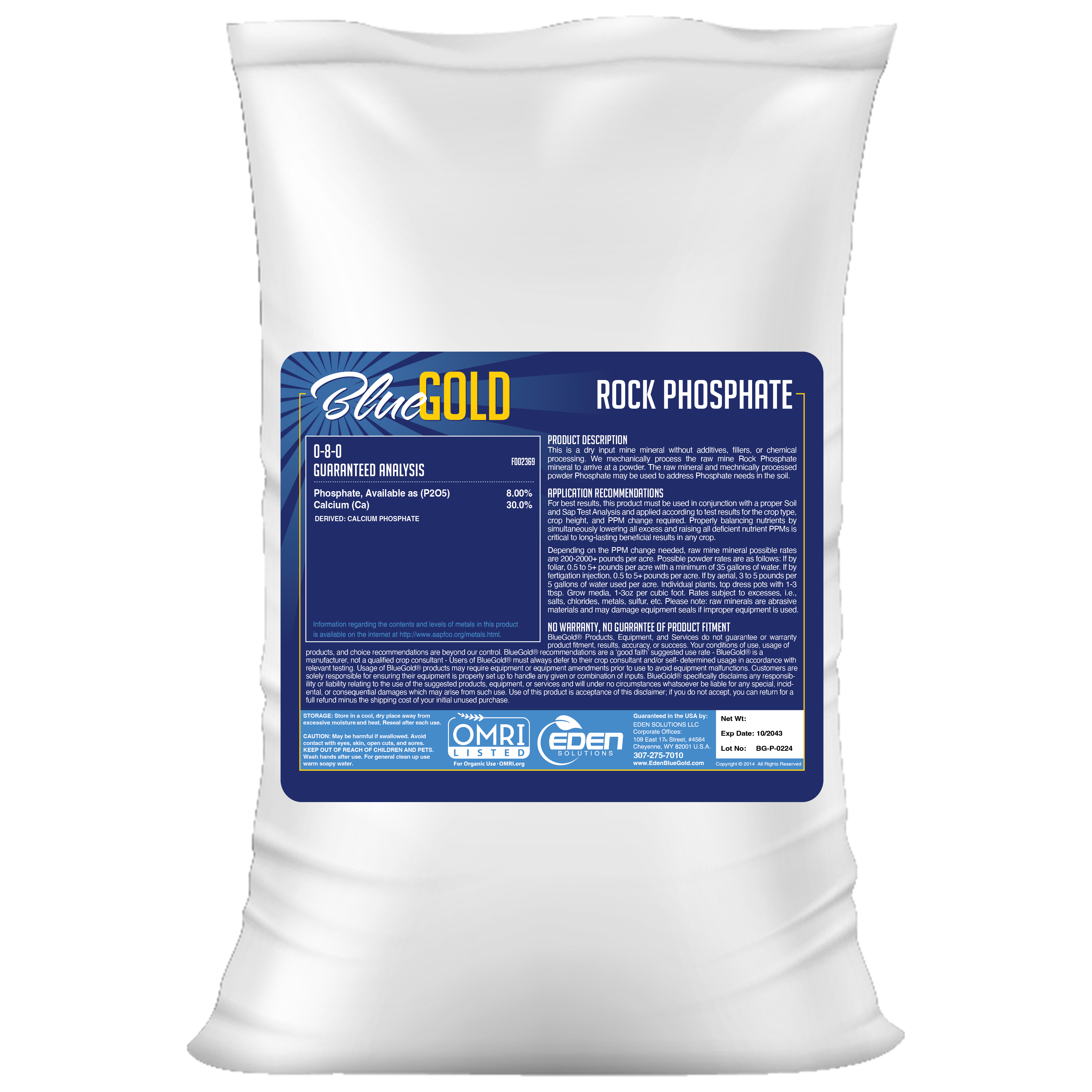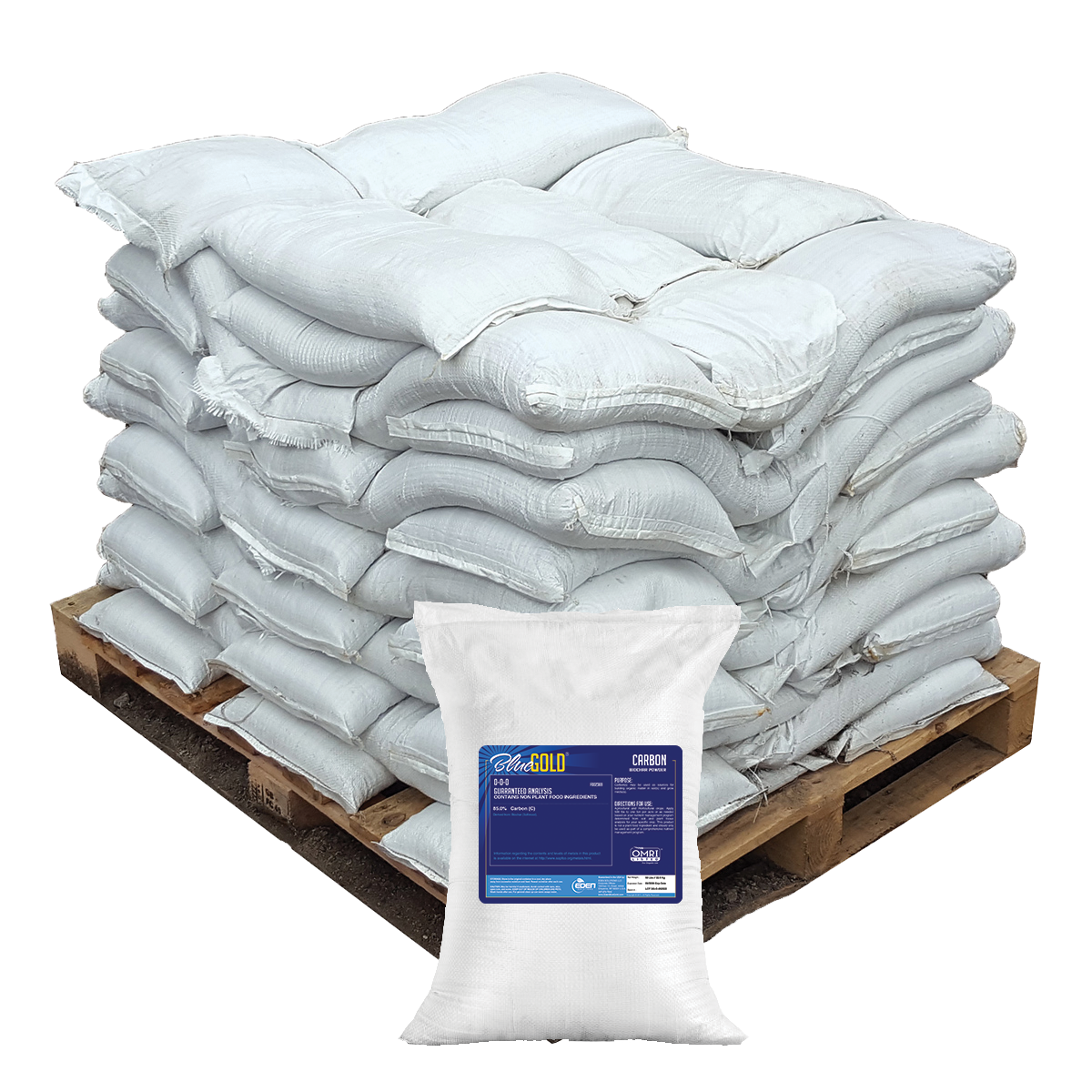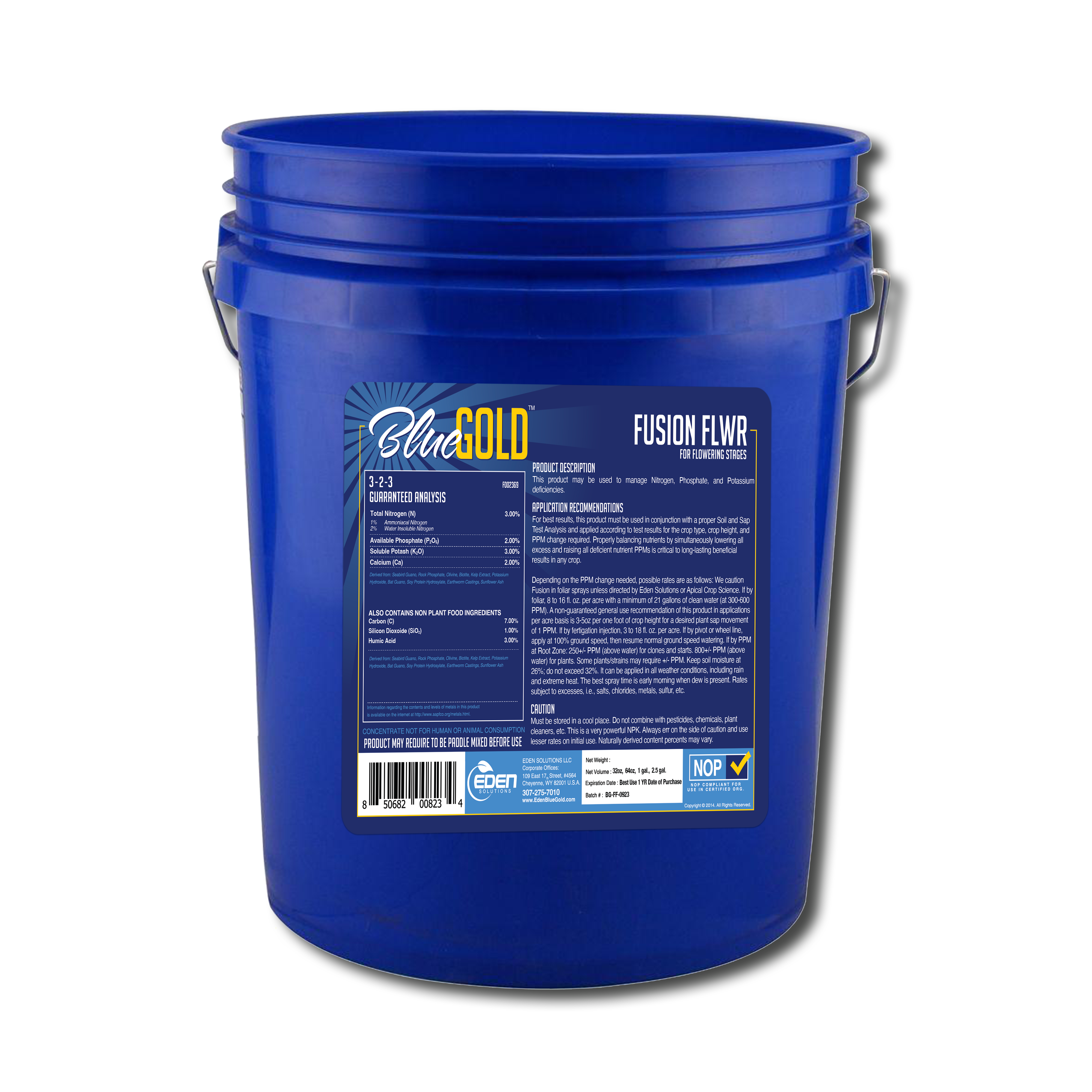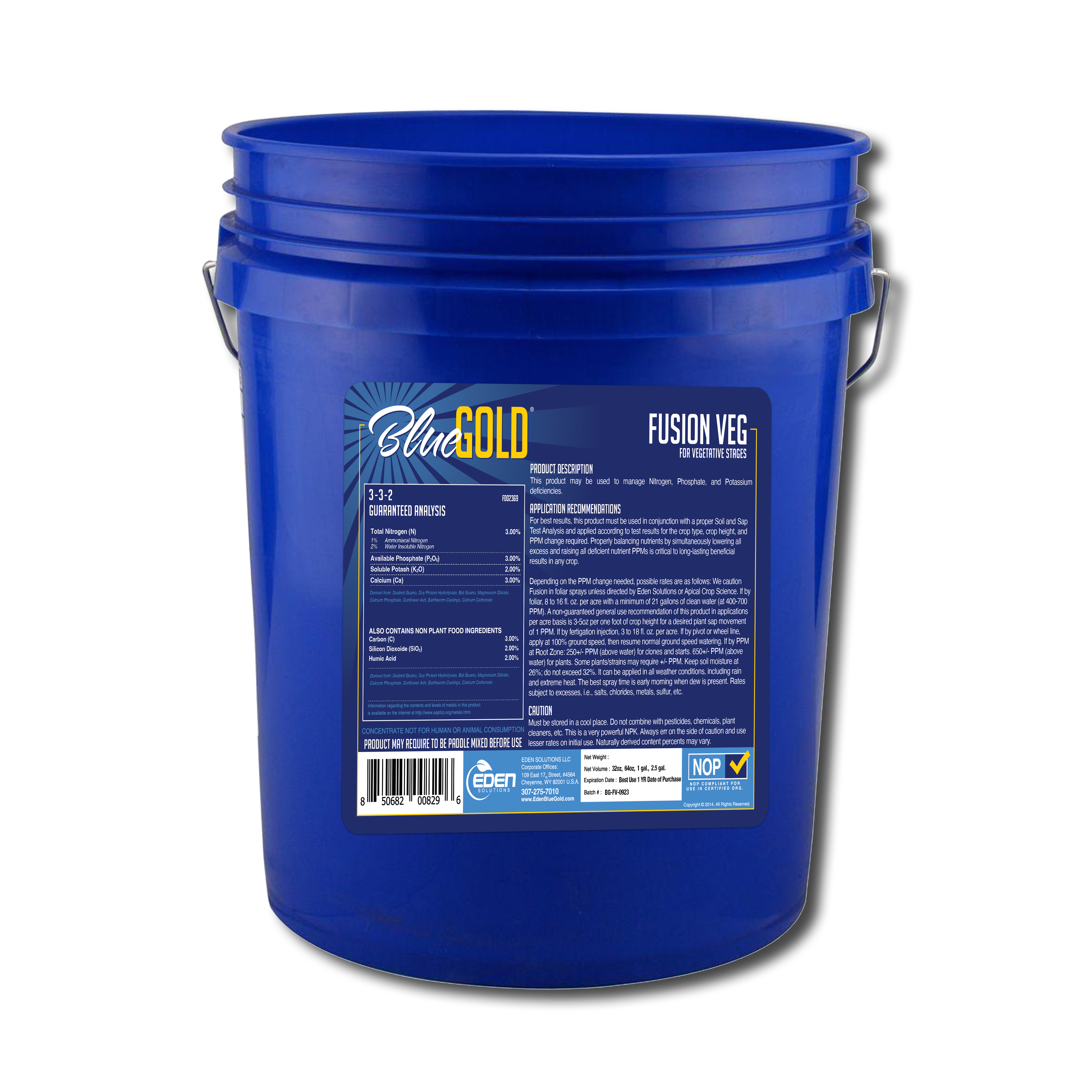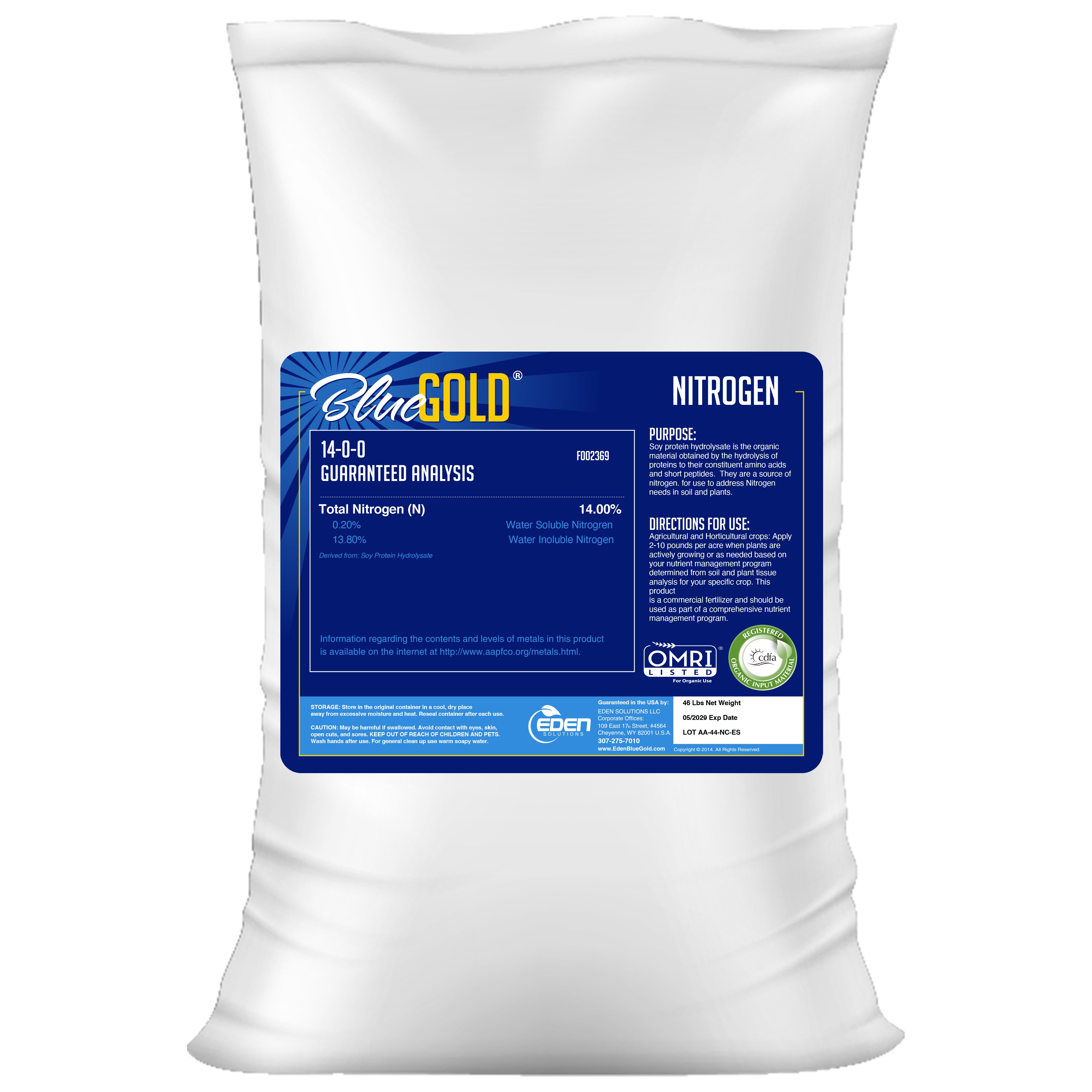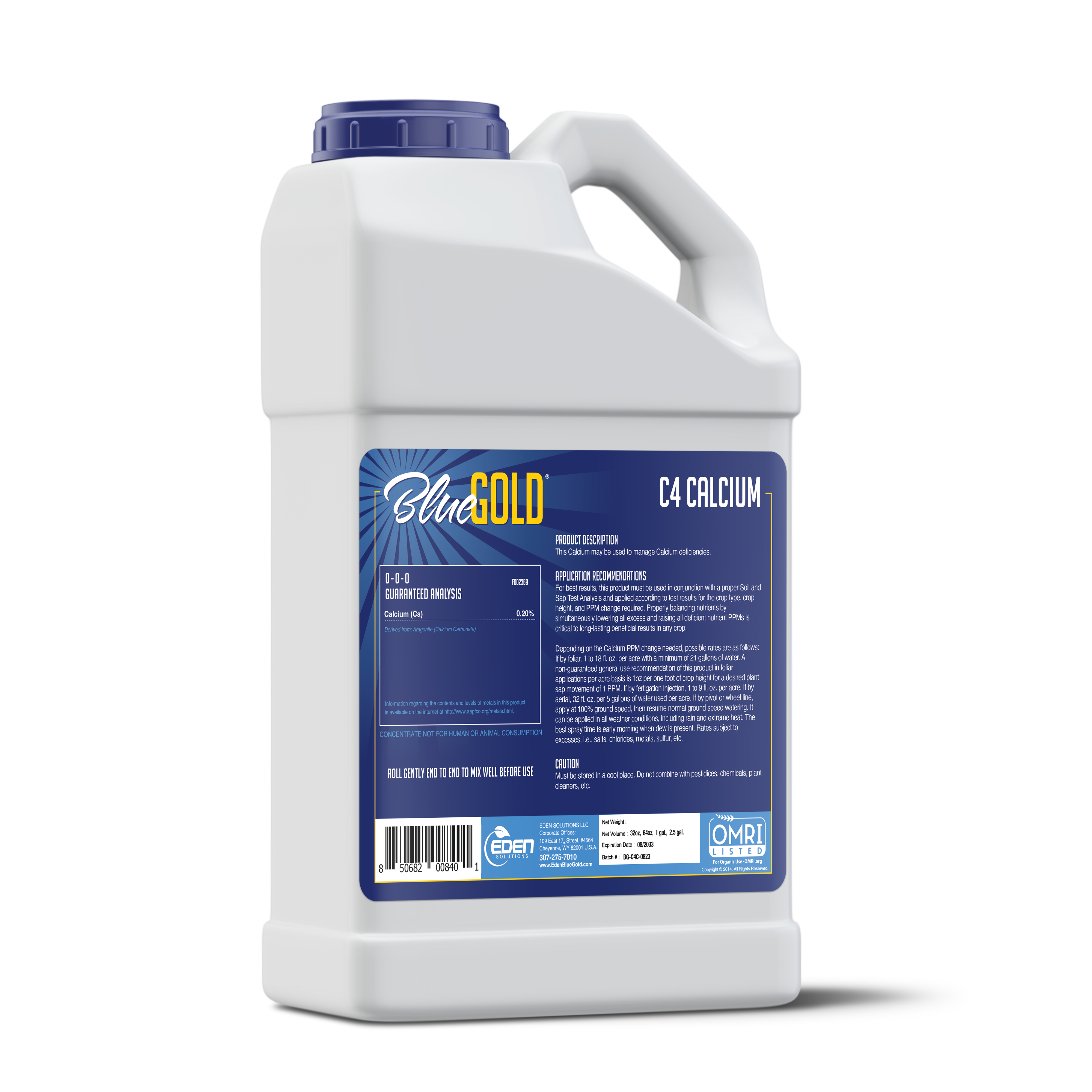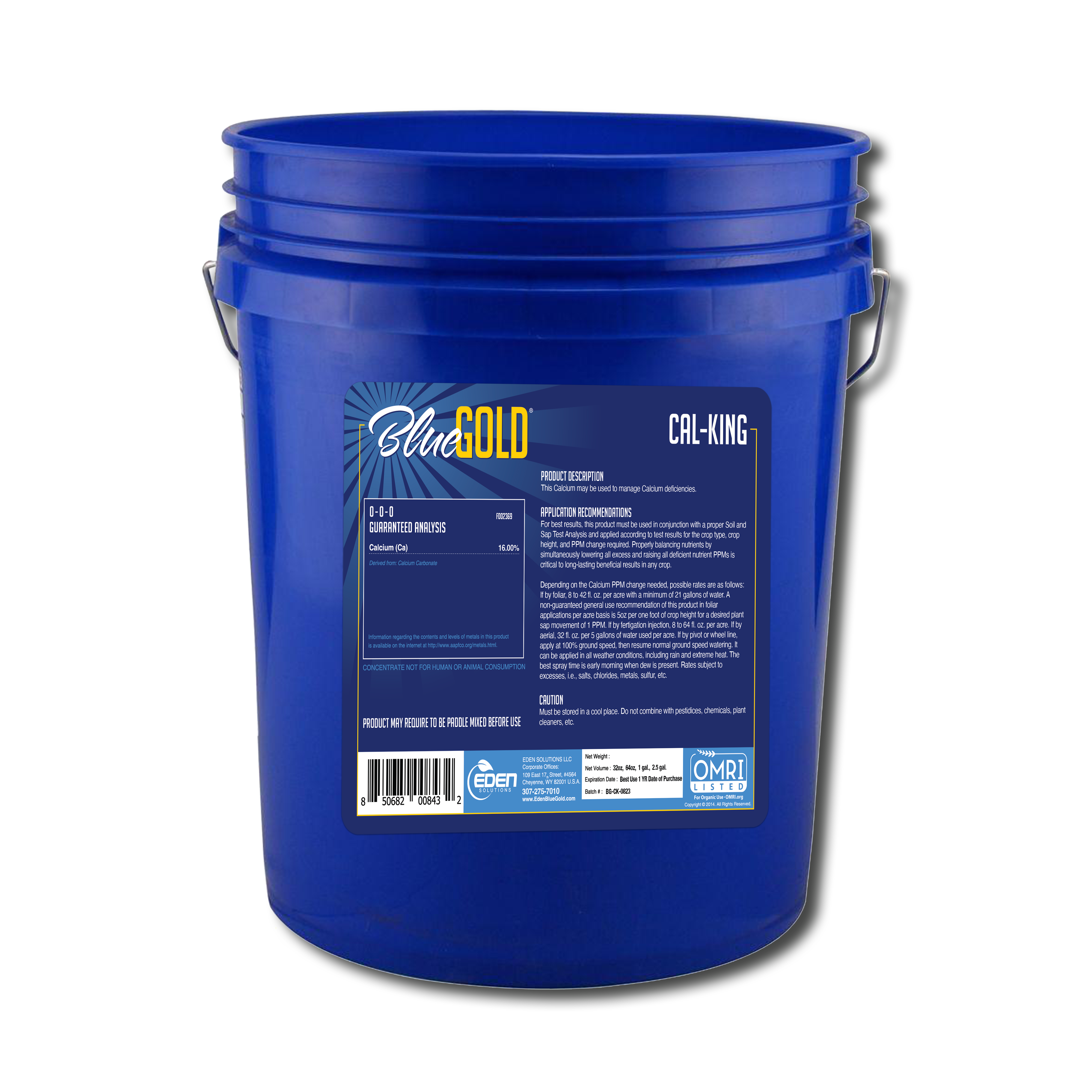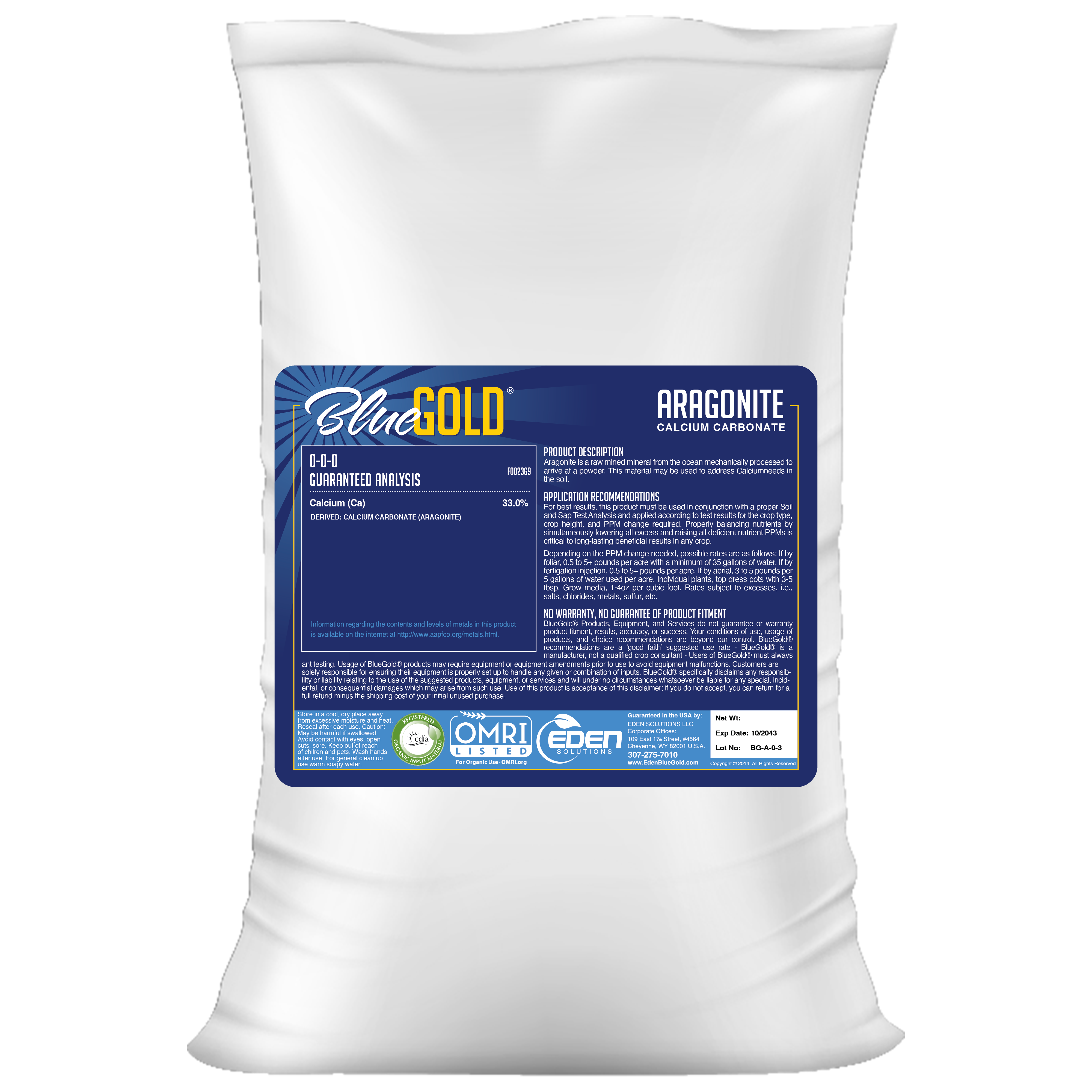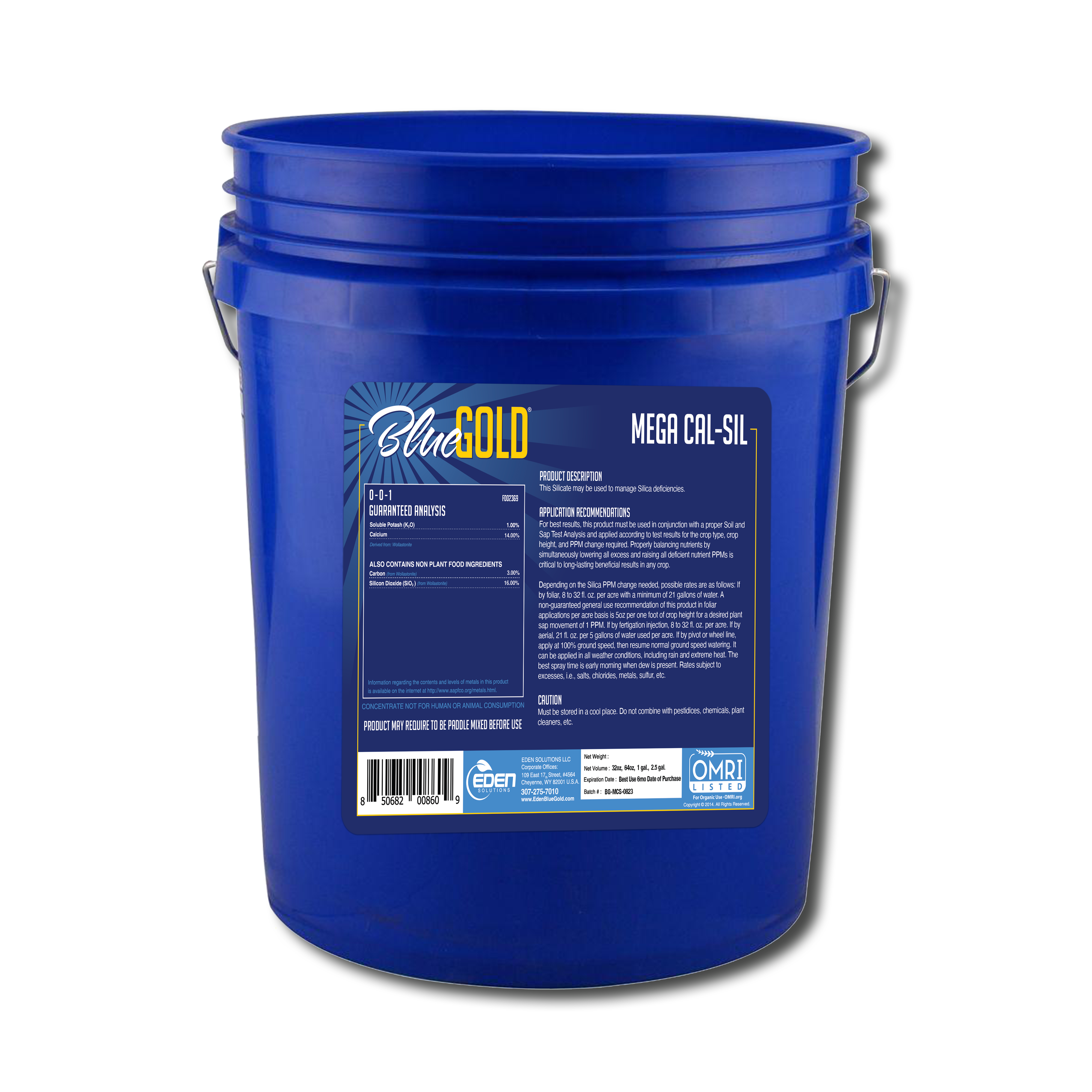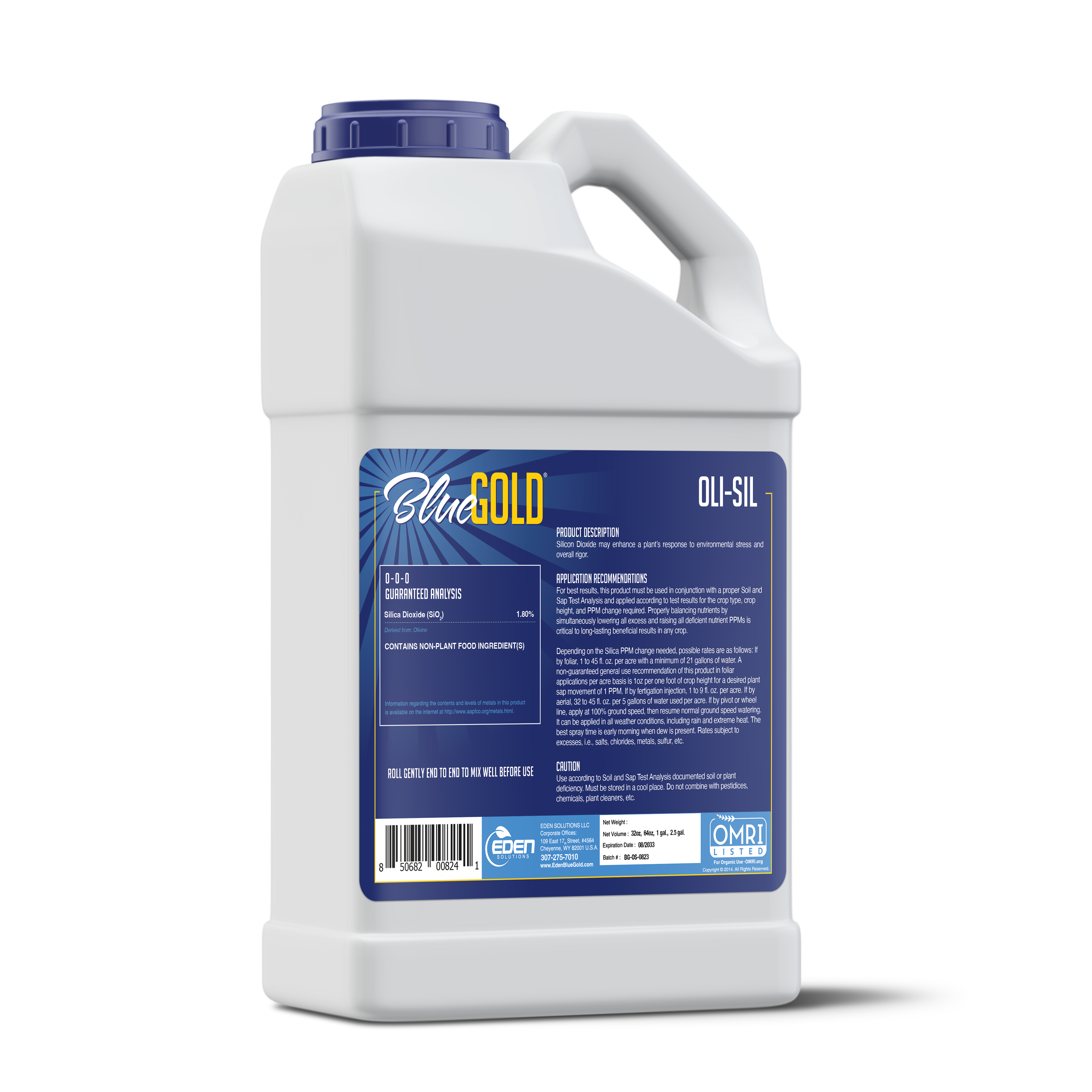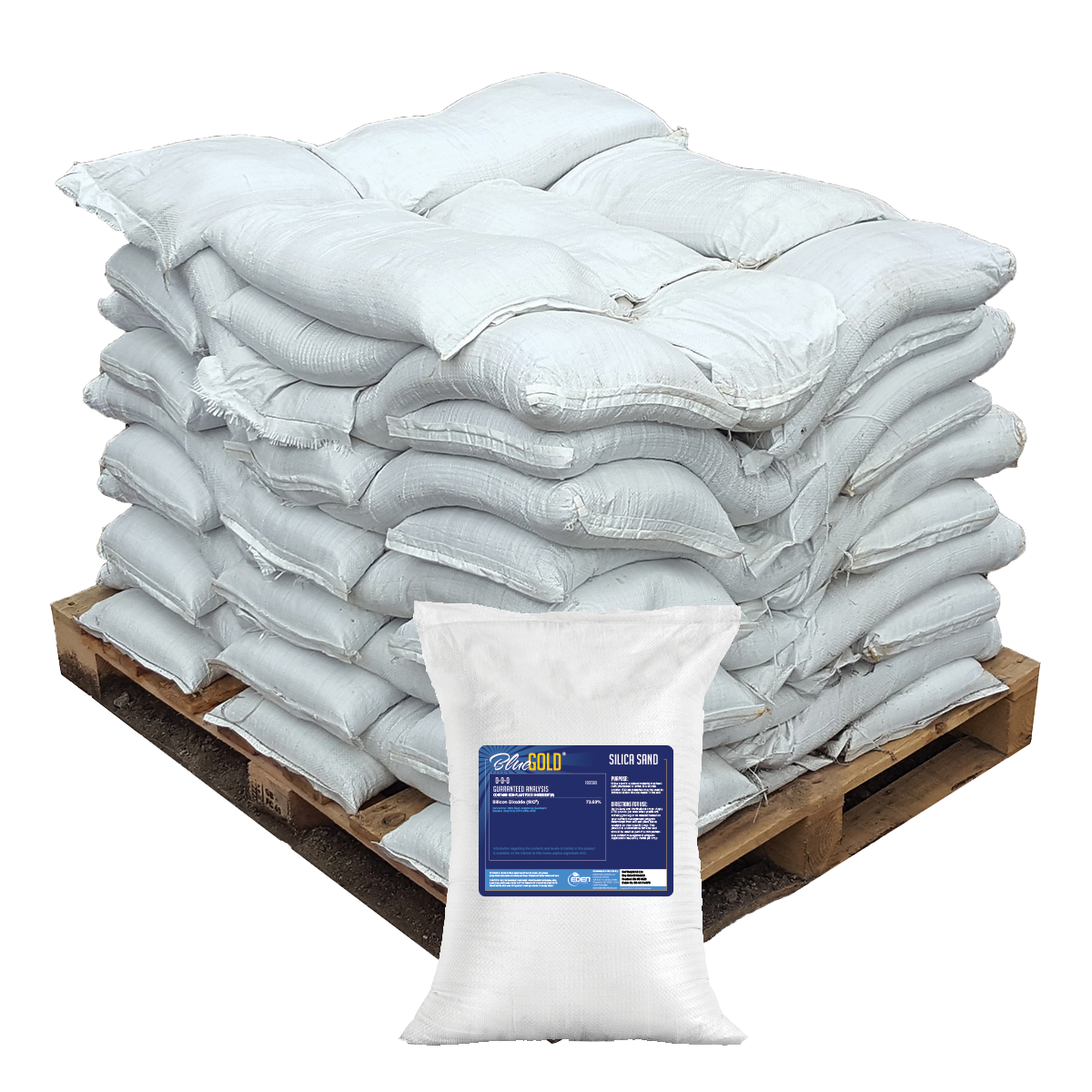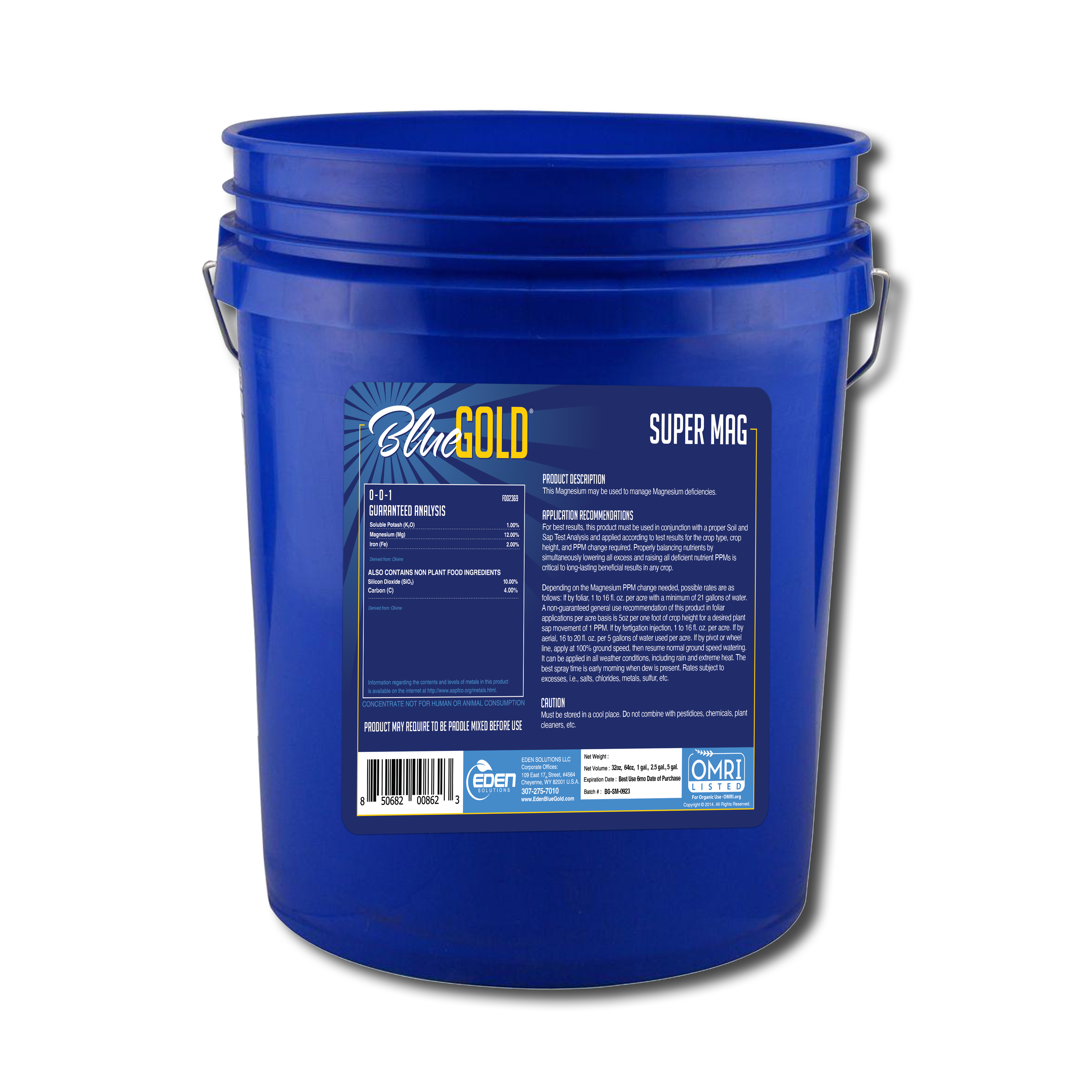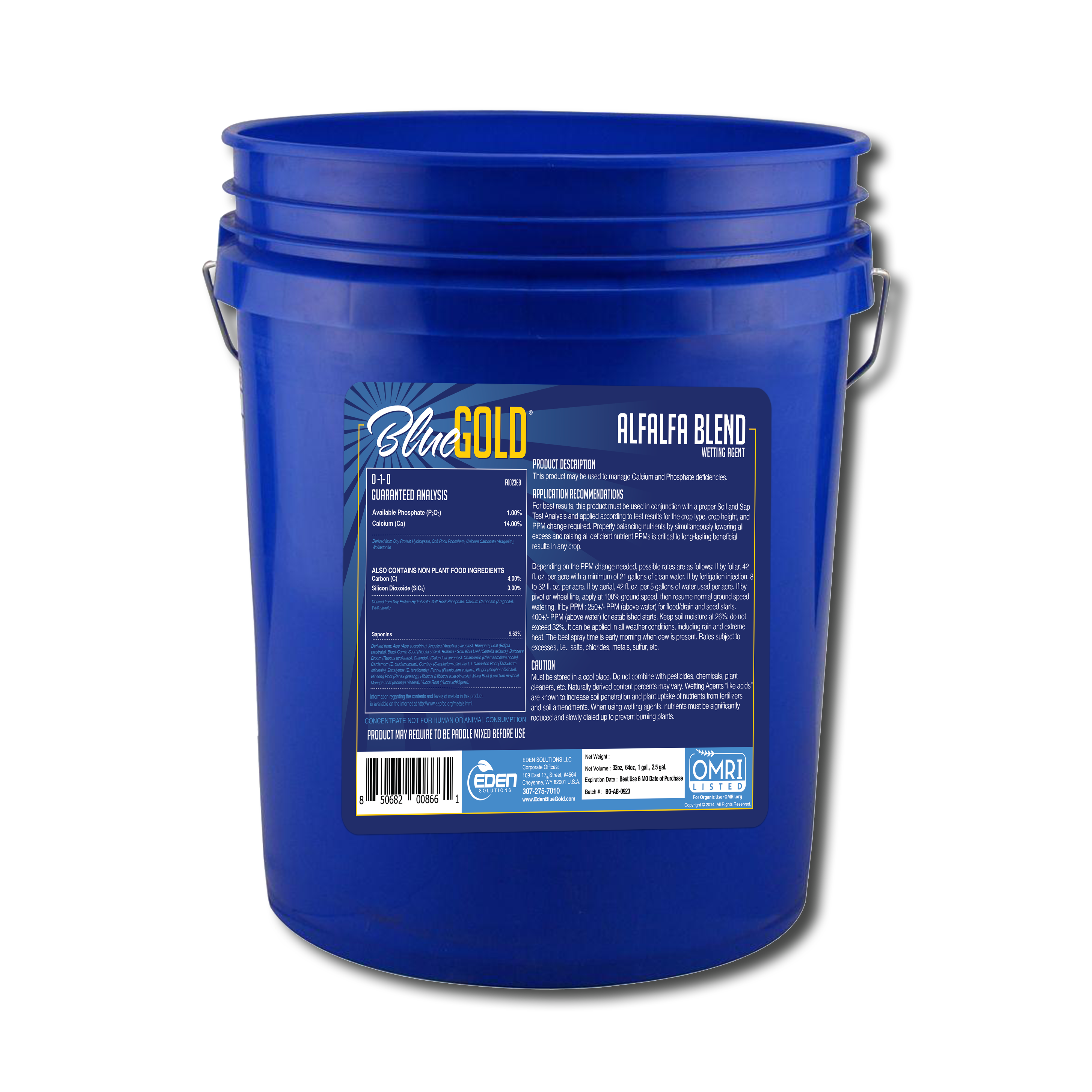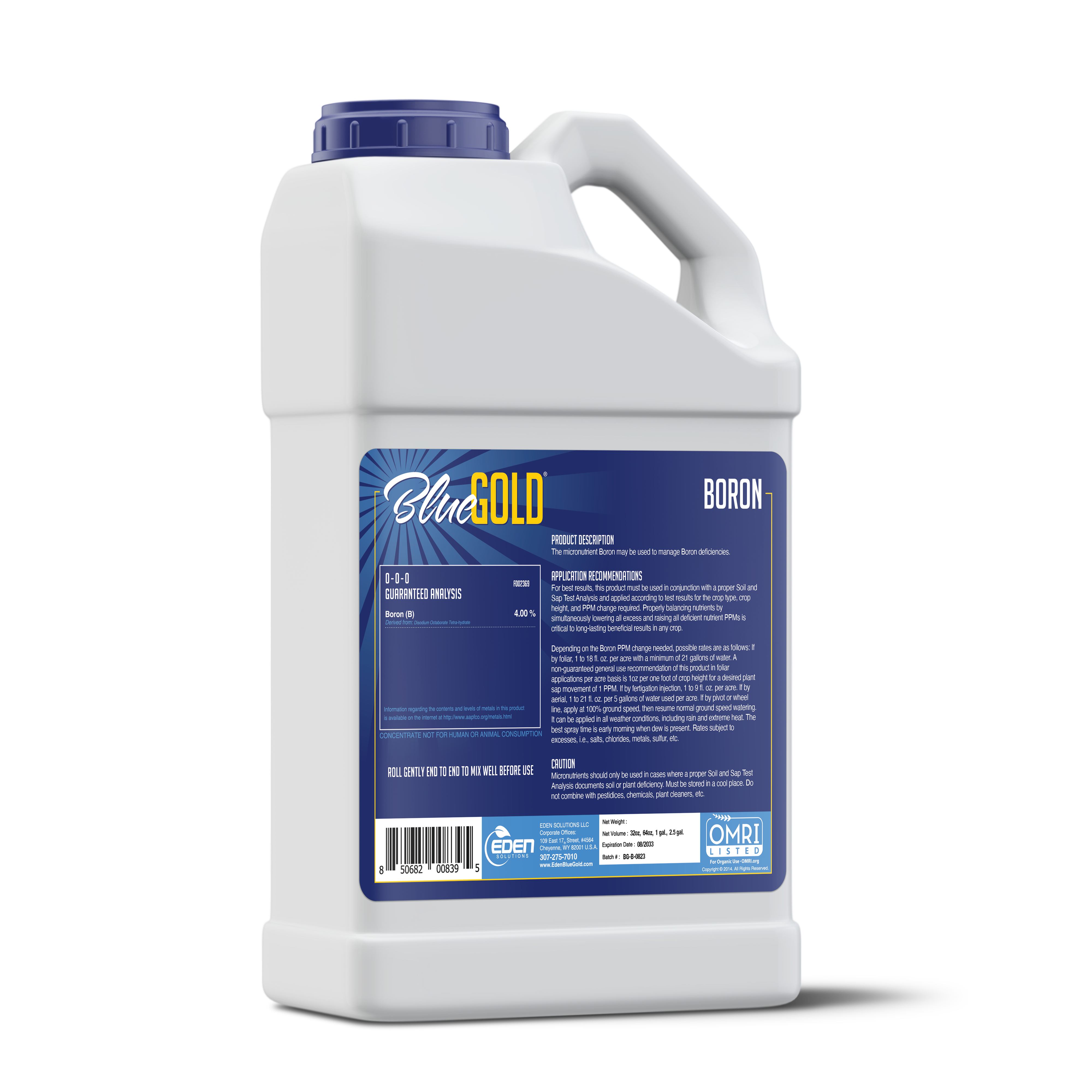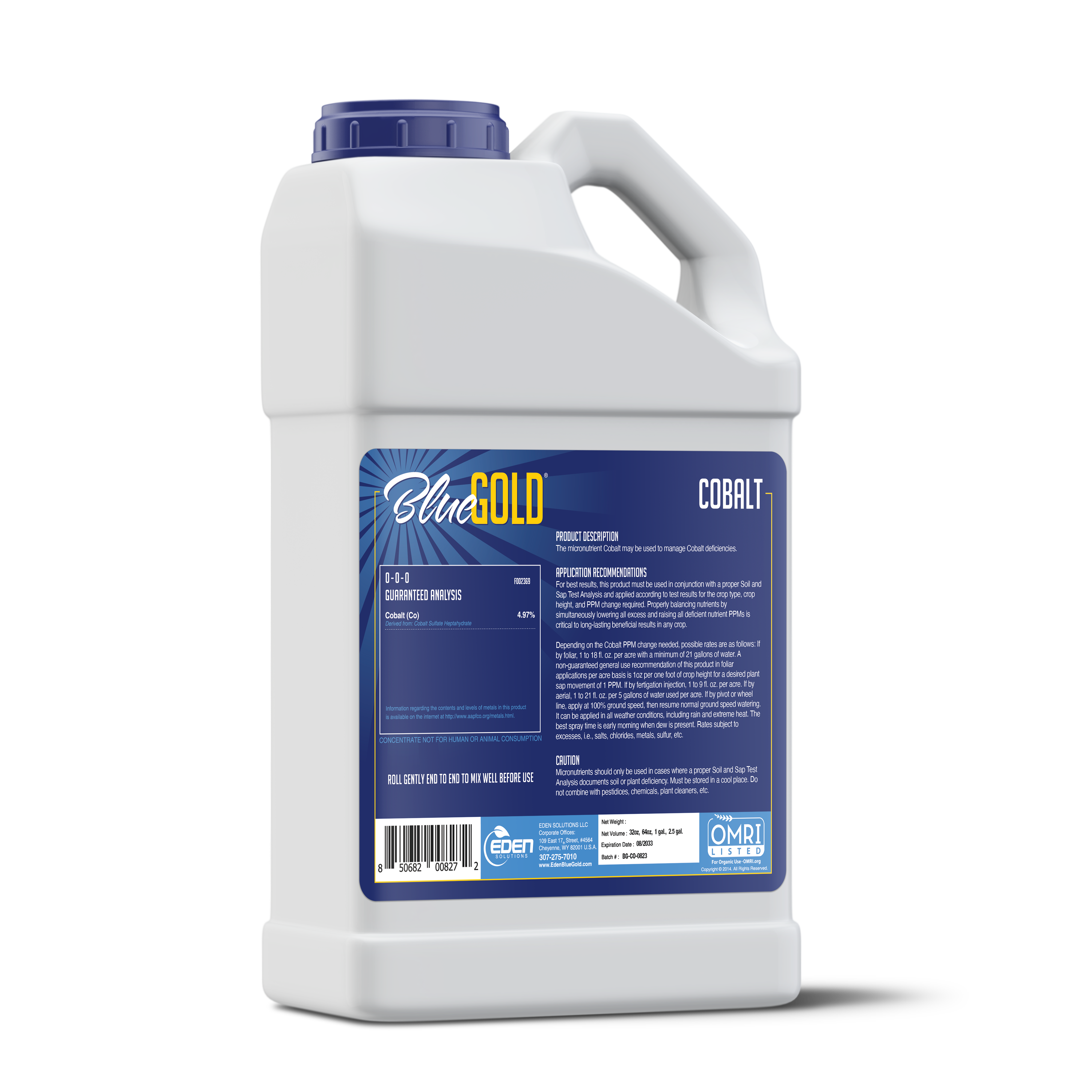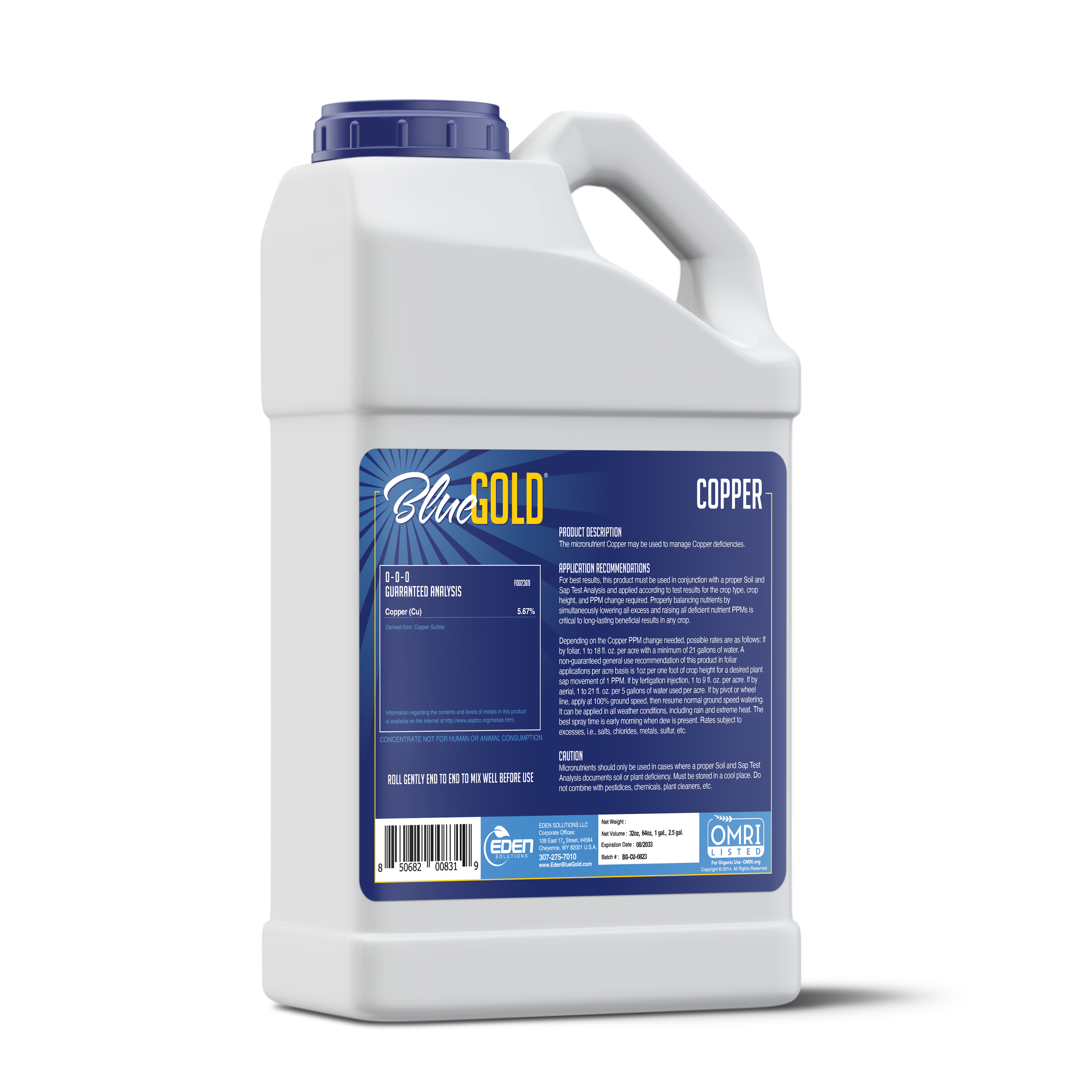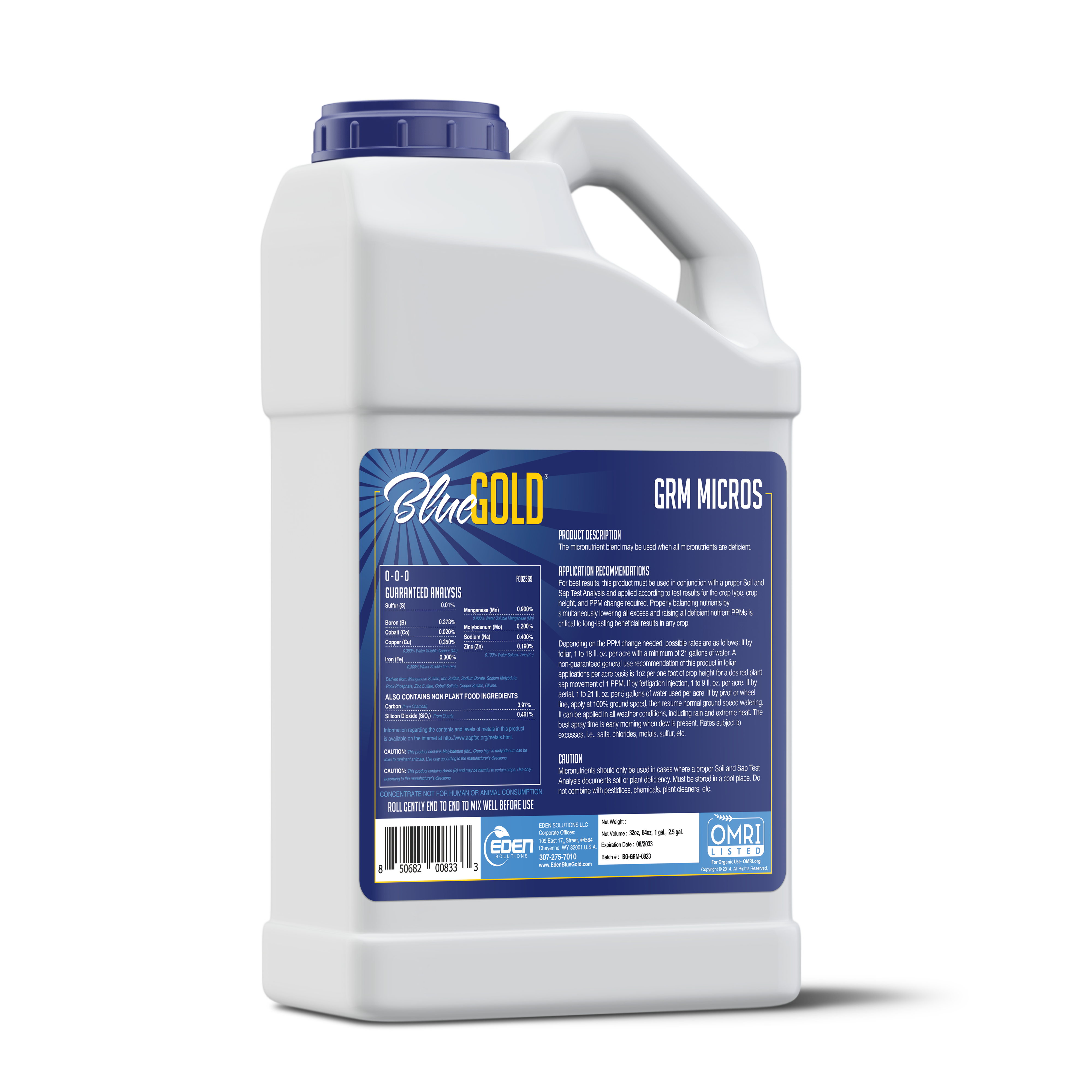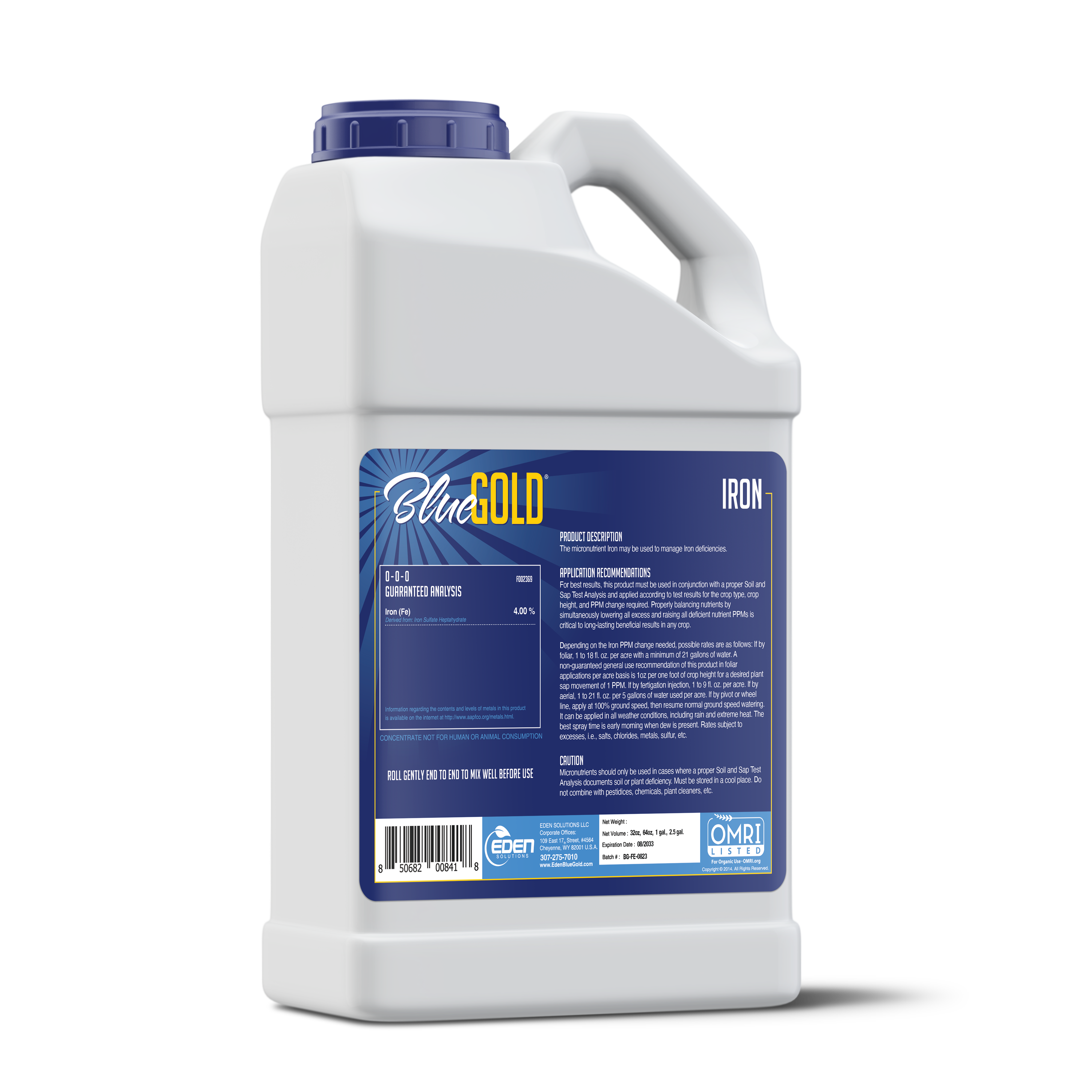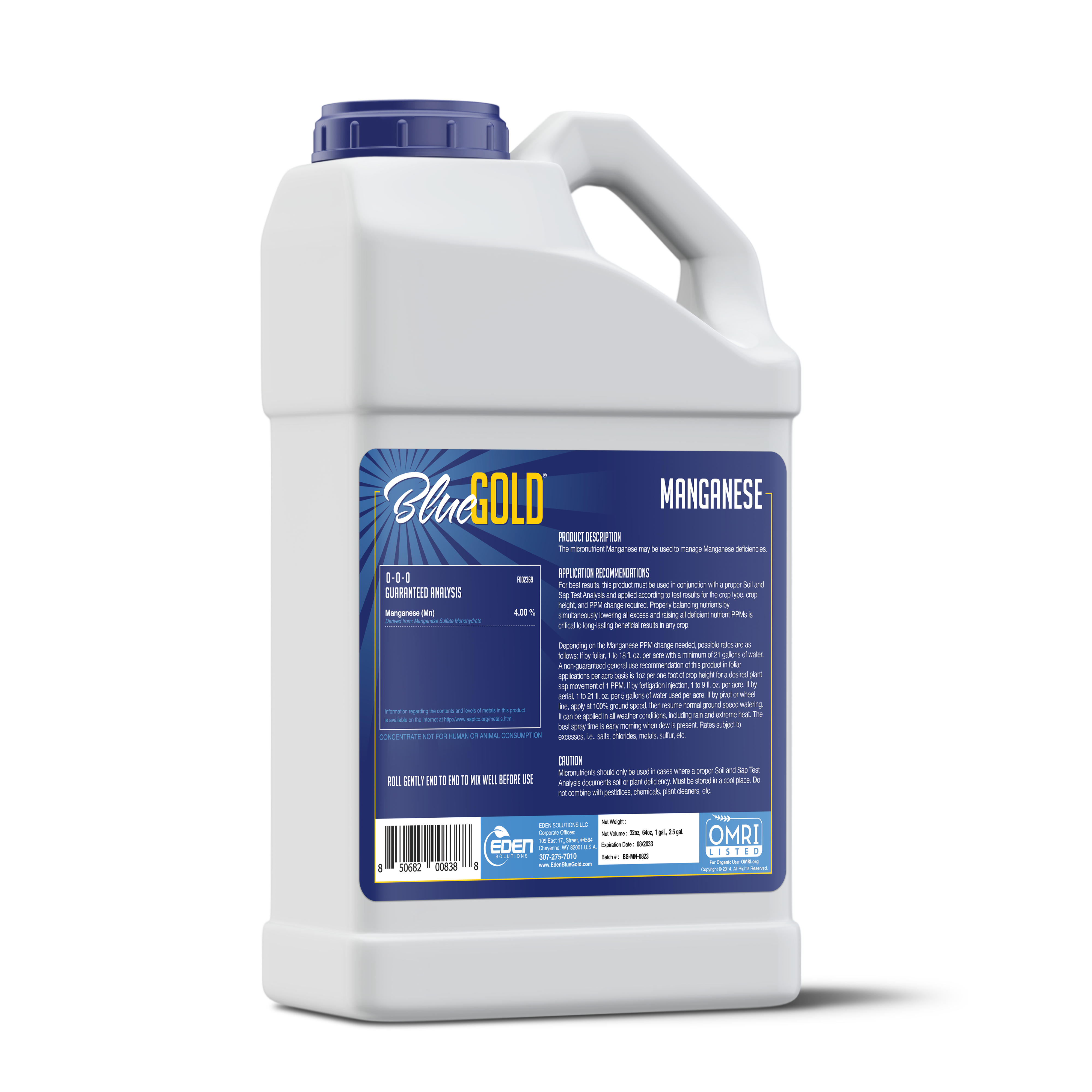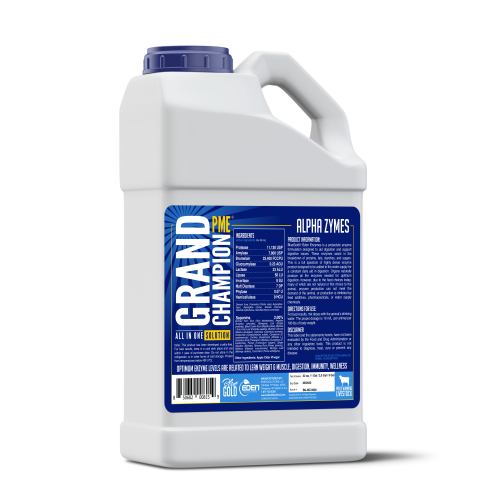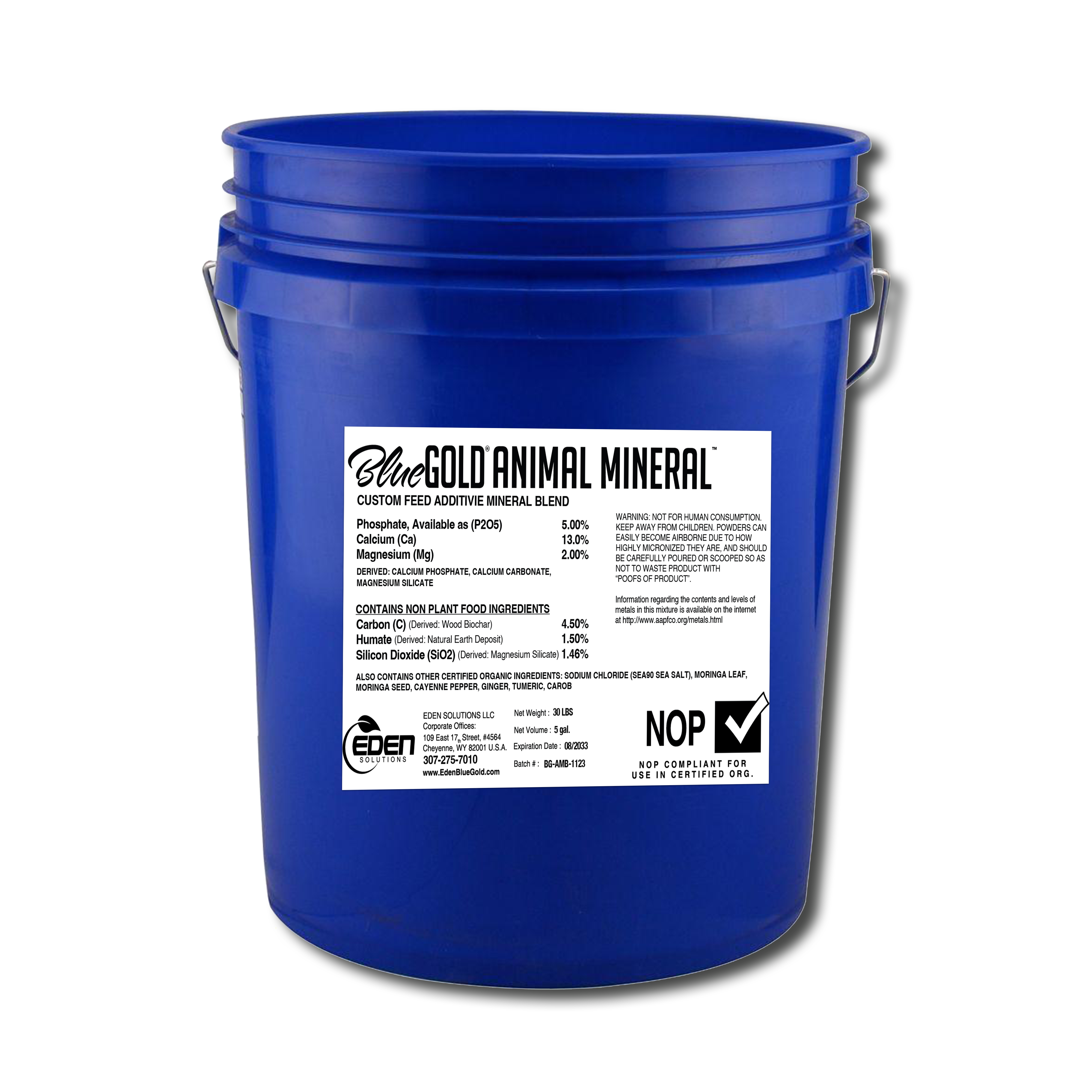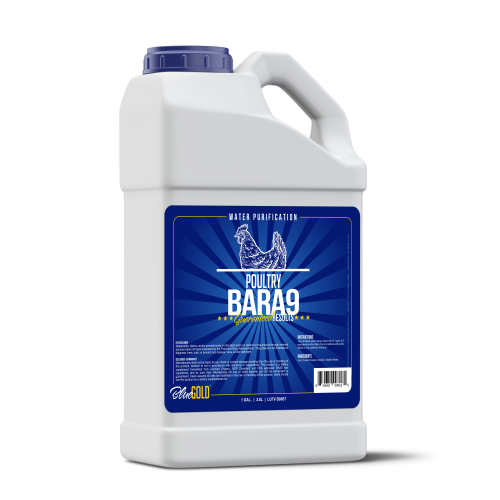min•i•mal
Adjective 1. of a minimum amount, quality, or degree: negligible
Why are farms requiring more inputs but still generating less production? Modern Ag is in a race to the bottom, by its continuing self-proclamation of problematic increases. Why does it seem there are only a handful of farmers growing pest, disease, and weed-free with high production and profit levels? How many Nutrient Lines have you tried over the years? Are you better off today than when you started? Do you still have the problematic yearly pest, disease, and weed pressure and/or production issues eating up profits? The same products and methods that have been practiced for decades are leading towards exponentially steeper and steeper declines in production and animal health.
We did not close the gap with standard farming practices. At Eden Solutions, properly balanced ratios of deliverable nutrition is our foundation. The BlueGold® Animal & Plant Systems will yield your highest profit and production. Our cutting-edge deliverable nutritionals are plant available in hours, not days or weeks. Our results are consistent and guaranteed. We refused to continue to farm min•i•mal, so we founded Eden Solutions and our unprecedented BlueGold® Solutions, Manufacturing Techniques, Auxiliary Equipment, and Apical's Revolutionary Soil/Sap Testing. If you desire a more profitable way to farm, consider farming max•i•mal with us.
Adjective 1. of or consisting a maximum; the highest or greatest possible
max•i•mal
WE ARE RESULTS DRIVEN!
We were farmers who demanded better results. Now we deliver them.
At Eden Solutions we do not believe in just selling you Solutions. Instead, we believe in providing Amazing Results, for real problems that require, real results. Yield your highest profits and production with max•i•mal balanced nutrition. Eden Solutions' 100% All-Natural, NOP-Compliant, and OMRI-Listed BlueGold® Solutions help correct issues plaguing Agriculture today. BlueGold® Plant Solutions correct the soil health issues that cause an abundance of pest, disease, and weed pressure, poor production, nutrient lock-out, soil/plant sap excesses and deficiencies, and more.
Please call us at 1-307-275-7010.
✓ OMRI-Listed, 100% Natural, NOP-Compliant for Certified Organic Programs
✓ Safe for all plants. Will not harm water, humans, beneficials, pollinators,
animals, or the environment
✓ Free of toxins, heavy metals, harsh chemicals and pHs, high Na Salts and
Chlorides, PGRs, GMOs, and hormones
✓ Plant Sap Analysis proved to show foliar/injection results within hours
✓ Tested extensively in Independent Labs and Field Studies
✓ Proper pH and balanced nutrient ratios combined with the power of
plant-based saponins
✓ Safe to apply via foliar, fogging, drip, pivot, injection, and through all plant
growth stages from seed set, bud break, and fruit set to harvest
✓ Simple, easy, safe, profitable, pH balanced, and headache-free
learn to grow
PEST & DISEASE RESISTANT PLANTS
BRIX is the marker of a healthy plant. Did you know that pests do not have a pancreas? They cannot process sugar. Pests will pass up a healthy plant to devour a low BRIX plant. The bugs were Created to show us unhealthy plants. The BlueGold® Plant System builds and enhances the plant’s immune system and BRIX levels so you can grow pest and disease resistant plants. Pest pressure can indicate your plant soil/sap pH is above 6.4 and Phosphate, Silica, and available Calcium are deficient. Disease pressure can indicate plant soil/sap pH is below 6.4 and Calcium is deficient. You can have both pest and disease because Cation/Anion exchanges are out of balance with excess Aluminum.
growing at 6.4 pH
PERFECT SCIENCE
The industry puts little importance on resistance (pH) because we believe it does not fully understand it. Pests, diseases, plant nutrition, root growth and absorption rates, the biological breakdown of nutrients in the soil... every aspect of a growing cycle is dependent on and affected by the pH balance of the soil. Nutrient Input pH must match the soil pH as initially established on Earth: the perfect ionic resistance (pH) of 6.4. If you do not manage your soil/ water or plant sap resistance (pH), it will manage you, and you will not like the results. This simplistic foundation is one of the most vital components to successful growth. Apical Testing will tell you what nutrients are in excess and deficient.
farm max•i•mal
PUSH BOUNDARIES
What the industry calls ‘optimum,’ we call, ‘not even close.’ If you’re optimum, why do you still have the problematic yearly pest, disease, and yield issues eating up production faster than you can generate profits? The gap will not close with standard chemical farming practices that continue to generate min•i•mal production and profits. We offer revolutionary new Sap and Soil tests unlike anyone else. Our cutting edge technology and plant nutrition are deliverable in hours, not days or weeks. As farmers, we refused to continue to farm Minimal, so we founded Eden Solutions with unprecedented BlueGold® Solutions, Manufacturing Techniques, Auxiliary Equipment, and Test Procedures.
"Glyphosate is a chelating agent. When you have glyphosate in the food, it binds all the trace minerals. They're no longer available for absorption. It depletes us of trace minerals. However, there's one exception, and that's aluminum. It works like a shuttling agent for aluminum. It binds aluminum, takes it across the gut wall into the tissues, and distributes it widely."
"Though your beginning was small, yet your latter end would increase abundantly."
Job 8:7
"For who has despised the day of small things…?"
Zec 4:10
"We have systematically depleted our natural resources, like fossil fuel and water, and polluted them further through the use of glyphosate and other pesticides. Worldwide, farmers use over 3 million tons of pesticides annually. Our dependence on these chemical fertilizers, pesticides and herbicides are causing a public health crisis with little accountability on the part of manufacturers."
Oxford Research Encyclopedia"Today, we are facing both a food crisis and a public health crisis. They are inextricably linked, as we now know. Affordability of fresh, nutrient-rich foods is a serious challenge that many people face, while the long-term effects of glyphosate and other pesticides on the human immune, reproductive, and nervous systems are just beginning to be discovered. Over 1,600 chemicals are currently being used in pesticides in the U.S — the overwhelming majority of which have not been tested for long-term effects on humans."
John Hopkins School of Public Health“We bent nature to serve our needs. We achieved the economies of large-scale, specialized production as we applied the principles, strategies, and technologies of industrialization to farming.”
John Ikerd
"Glyphosate is a chelating agent. When you have glyphosate in the food, it binds all the trace minerals. They're no longer available for absorption. It depletes us of trace minerals. However, there's one exception and that's aluminum. It works like a shuttle agent for aluminum. It binds aluminum, takes it across the gut wall into the tissues, and distributes it widely."
Dr. Seneff, Ph.D.
“Contrary to the current widely-held misconception that glyphosate is relatively harmless to humans, the available evidence shows that glyphosate may rather be the most important factor in the development of multiple chronic diseases and conditions that have become prevalent in Westernized societies...Glyphosate also depletes the body of the enzymes it needs to detoxify other harmful poisons, including other pesticide formulas and heavy metals. So not only does glyphosate destroy the body’s ability to protect itself against disease by depleting nutrient reserves and blocking nutrient absorption, but it also tells the body to essentially stand down in terms of guarding itself against a toxic invasion.”
Dr. Pamela Coleman, Ph.D
"The soil that a plant is grown in has an immense effect on what that plant contains in it. A healthy high functioning soil will produce crops that are flavorful, aromatic, nutritious, and should desiccate, not rot. As Crops are currently distinguished by type, but not by quality."
Dr. Arden Anderson
"How the devil can all these diseases, already catastrophic enough, blackmail cereal crops in such a fantastic, ceaseless way? What sort of curse has been placed on these fields? Is there no way out of this infernal spiral?"
Procida
From a publicity booklet put out by the Procida pesticide company in 1980."What we observe is not nature itself, but nature exposed to our method of questioning."
Heisenberg
Speaking about the overuse of chemical fertilizers over 40 years ago, "I think that it is not merely a question of healing the animal or man stricken by disease, it is necessary to heal the soil so as not to have to heal the animal or man."
Voisin
"…we should abandon all our preconceptions, most of which are afterward found to be found to be absolutely groundless and contrary to facts. The final appeal must be made to the plant itself and no evidence should be accepted unless it bears the plant’s own signature."
Bose
The director of the Laboratory of Biocybernetics and Agrophysics in Leningrad when asked if he had discovered anything ‘new’ said, "Nothing of the sort! That plants are able to perceive the surrounding world is a truth as old as the world itself. Without perception, adaptation does not and cannot exist. If plants had no sense organs and didn’t have a means of transmitting and processing information with their own language and memory, they would inevitably perish."
V.G. Karamanov
Laboratory of Biocybernetics and Agrophysics in Leningrad"No method of insect control will ever work as long as poisoned crops outgas ethanol and ammonia in small parts per million. Those two powerful fermentation chemicals are the mark of a dying, decaying plant and serve as attractants to all plant-eating insects."
Dr. Professor Philip Callahan
LSU leading Agronomist“Someday we shall look back on this dark era of agriculture and shake our heads. How could we have ever believed that it was a good idea to grow our food with poisons?”
Jane Goodall
Harvest for Hope: A Guide to Mindful Eating
